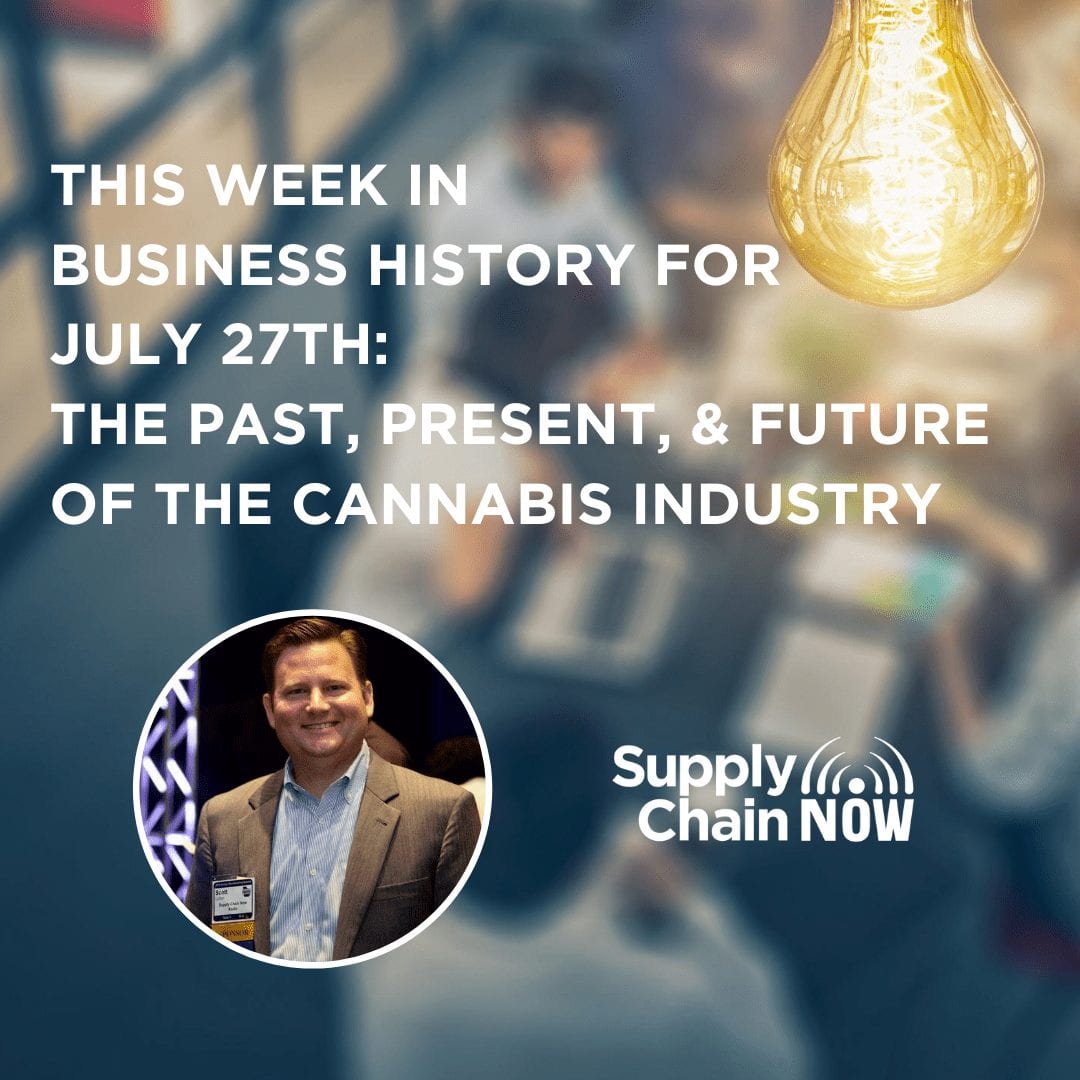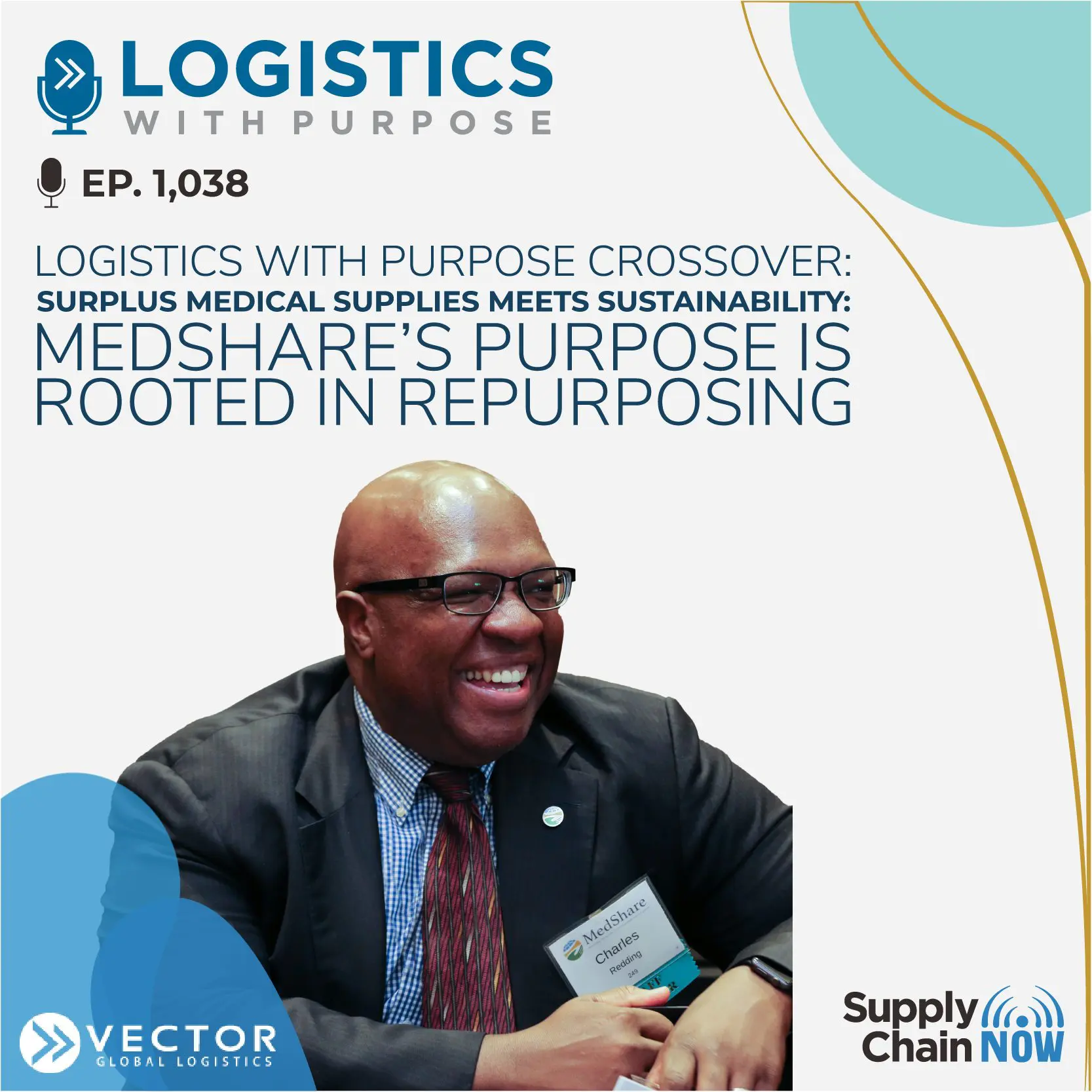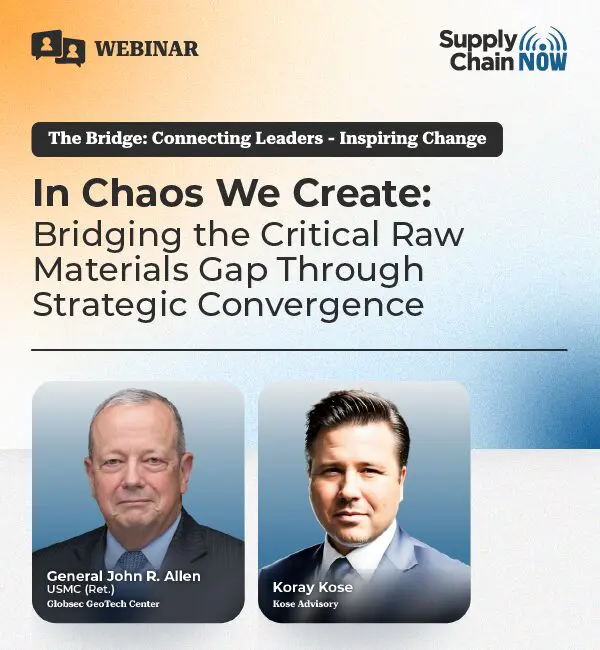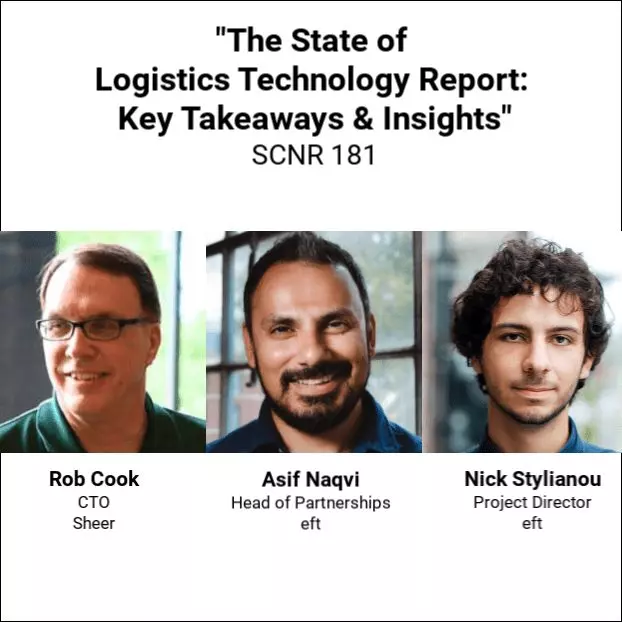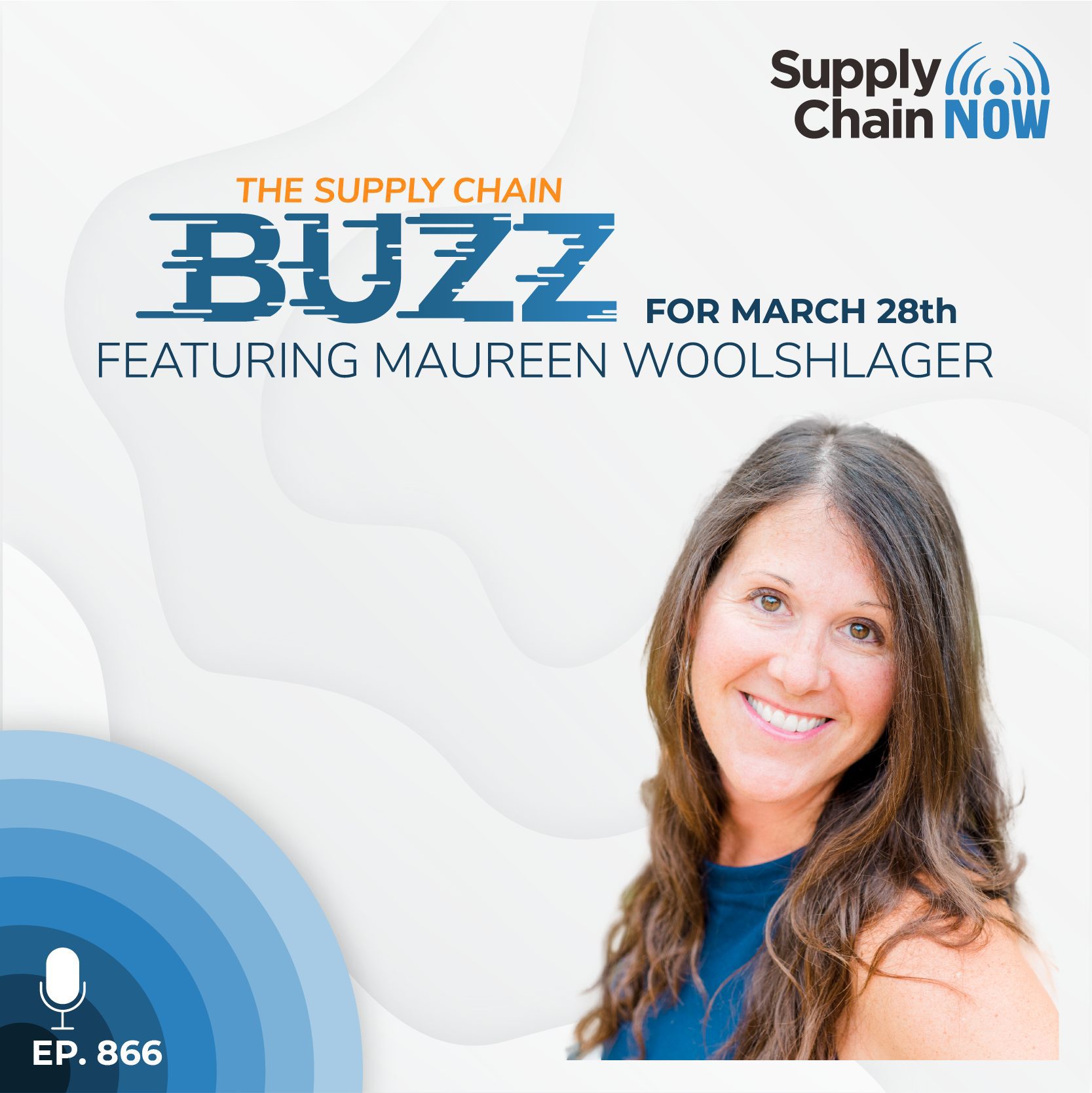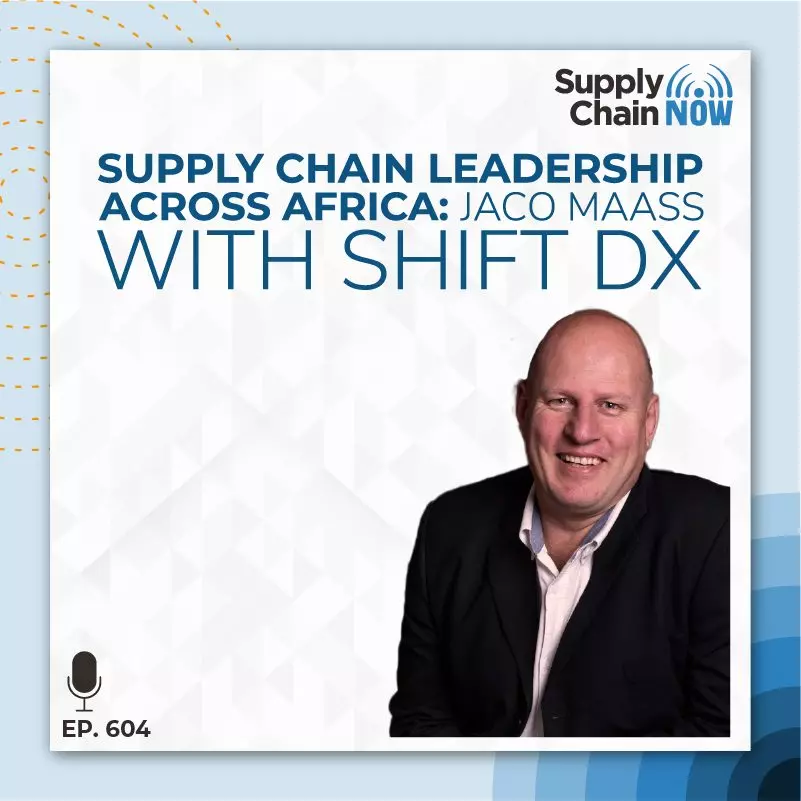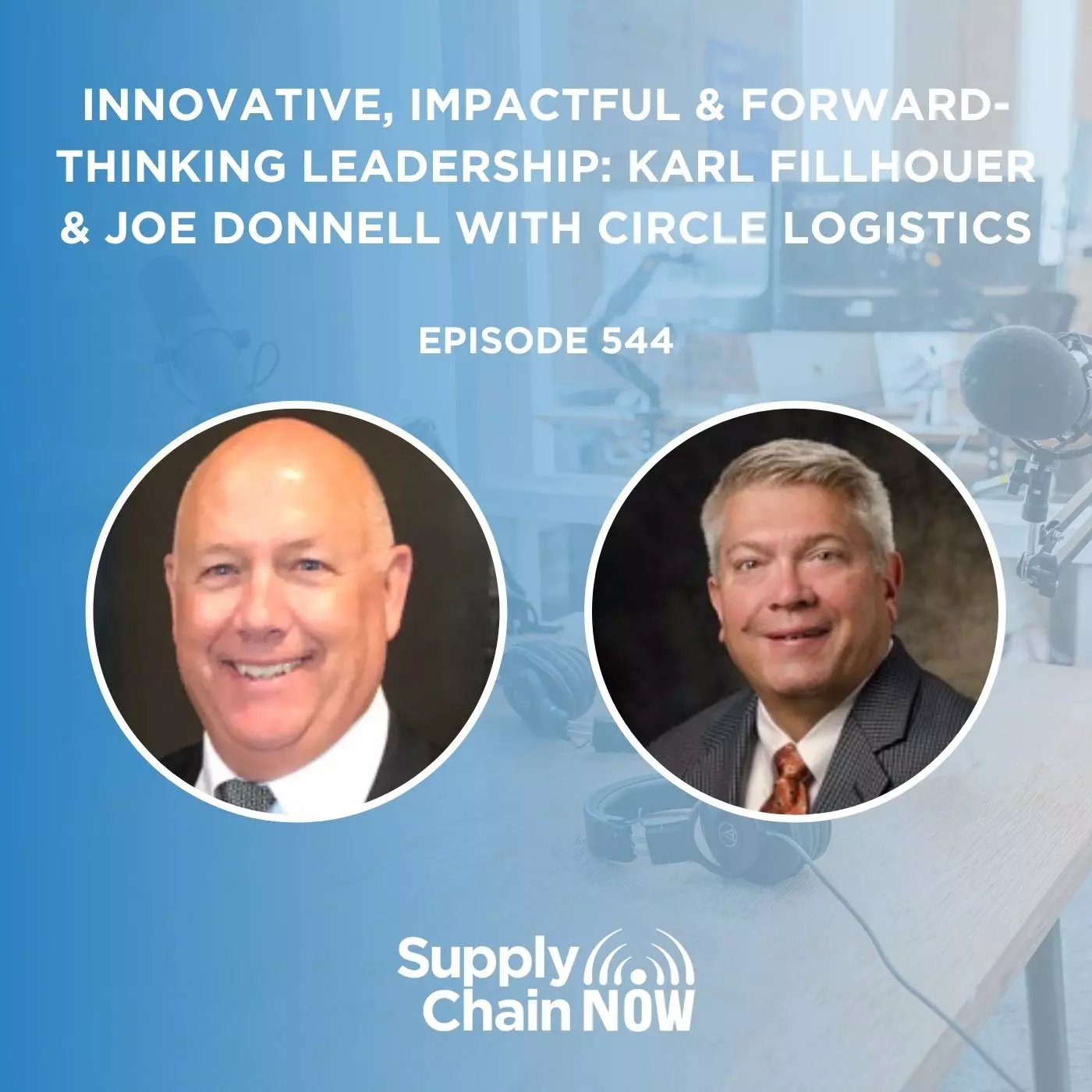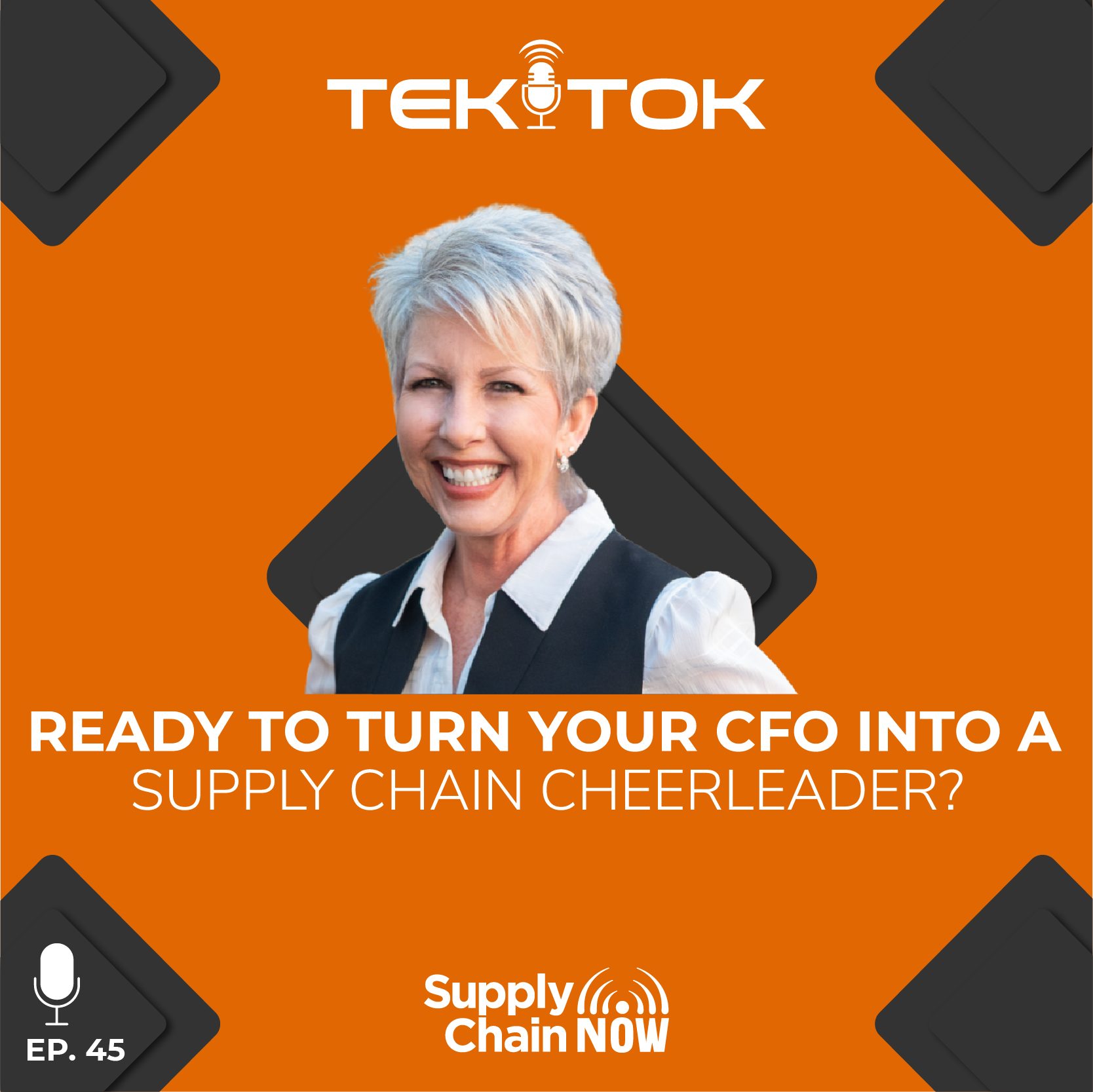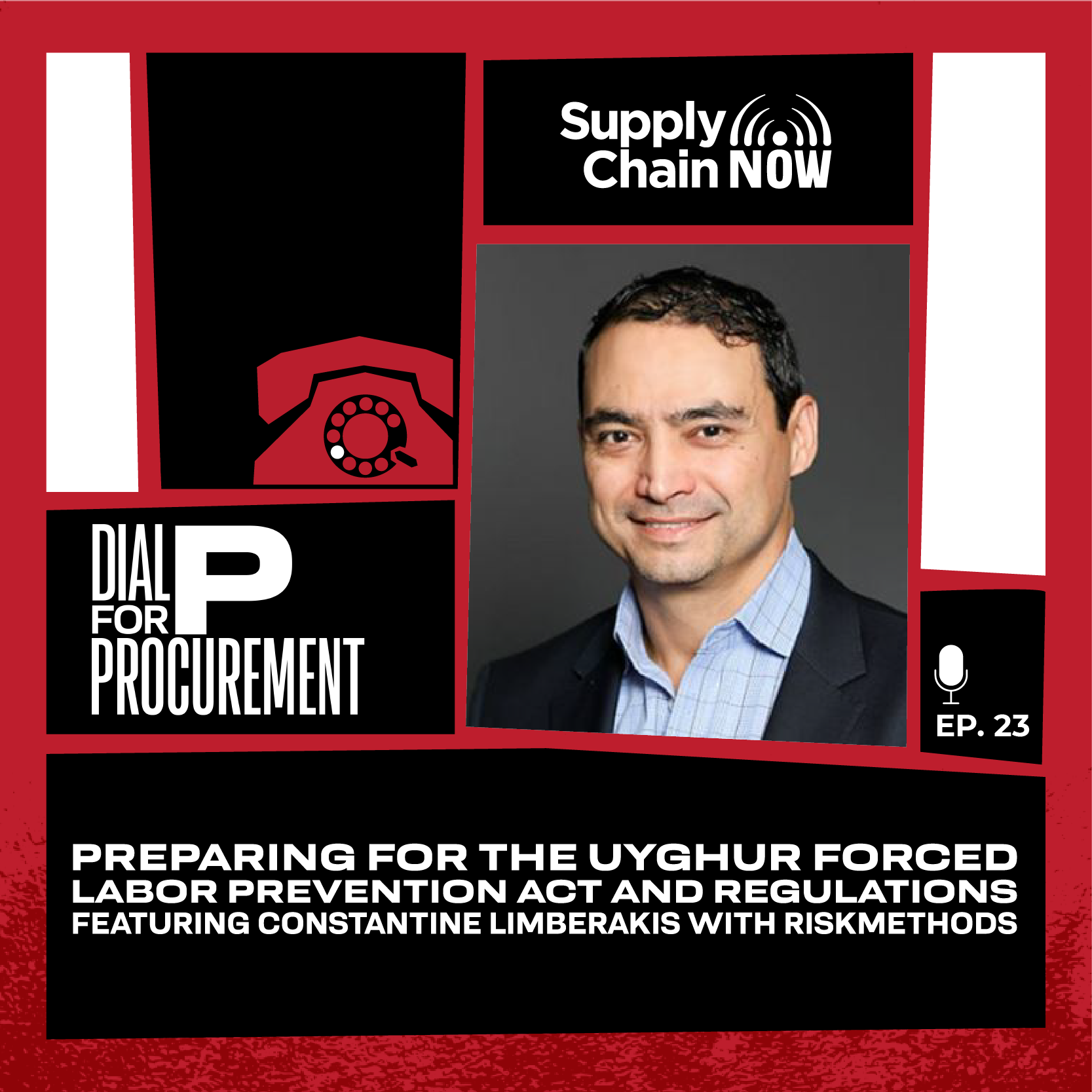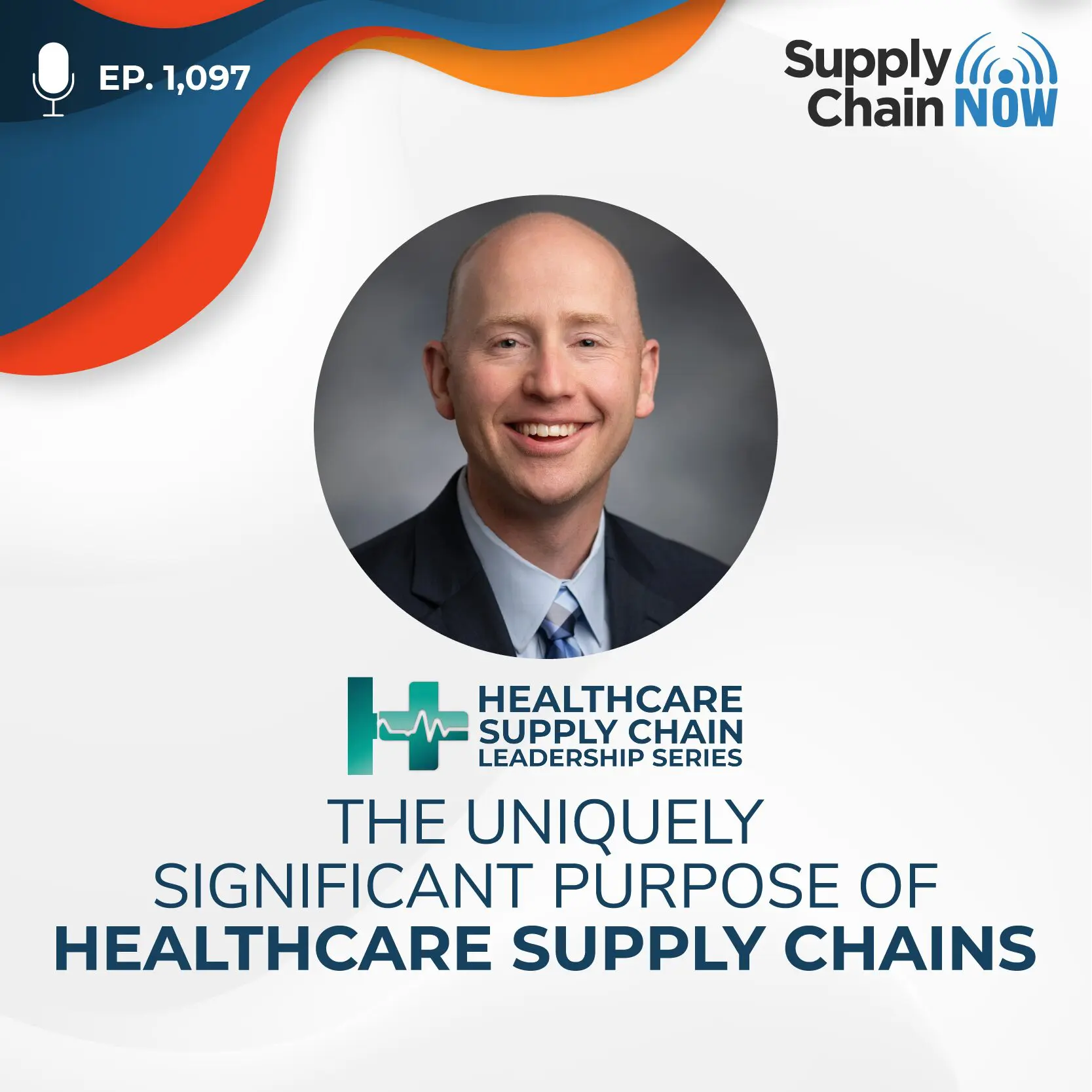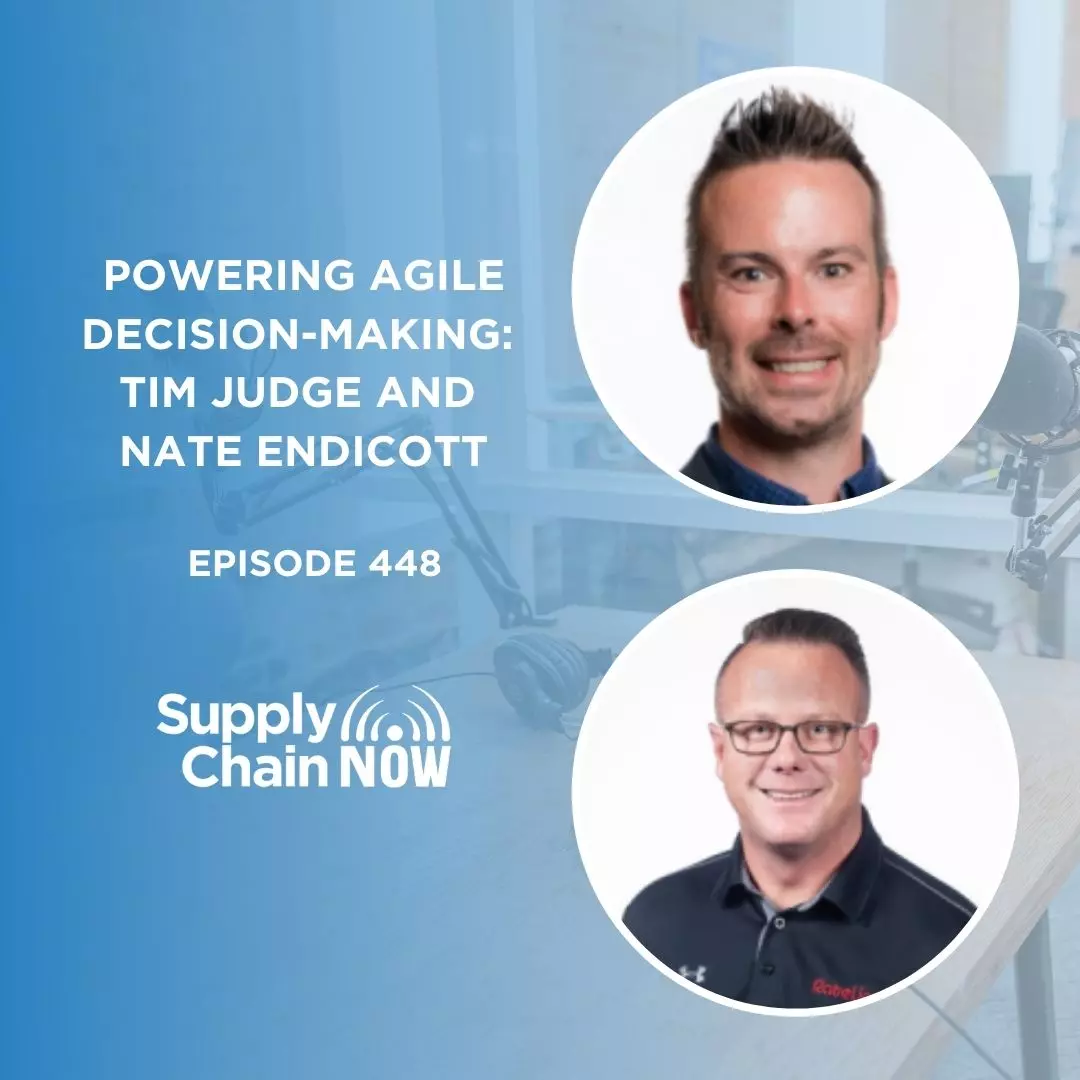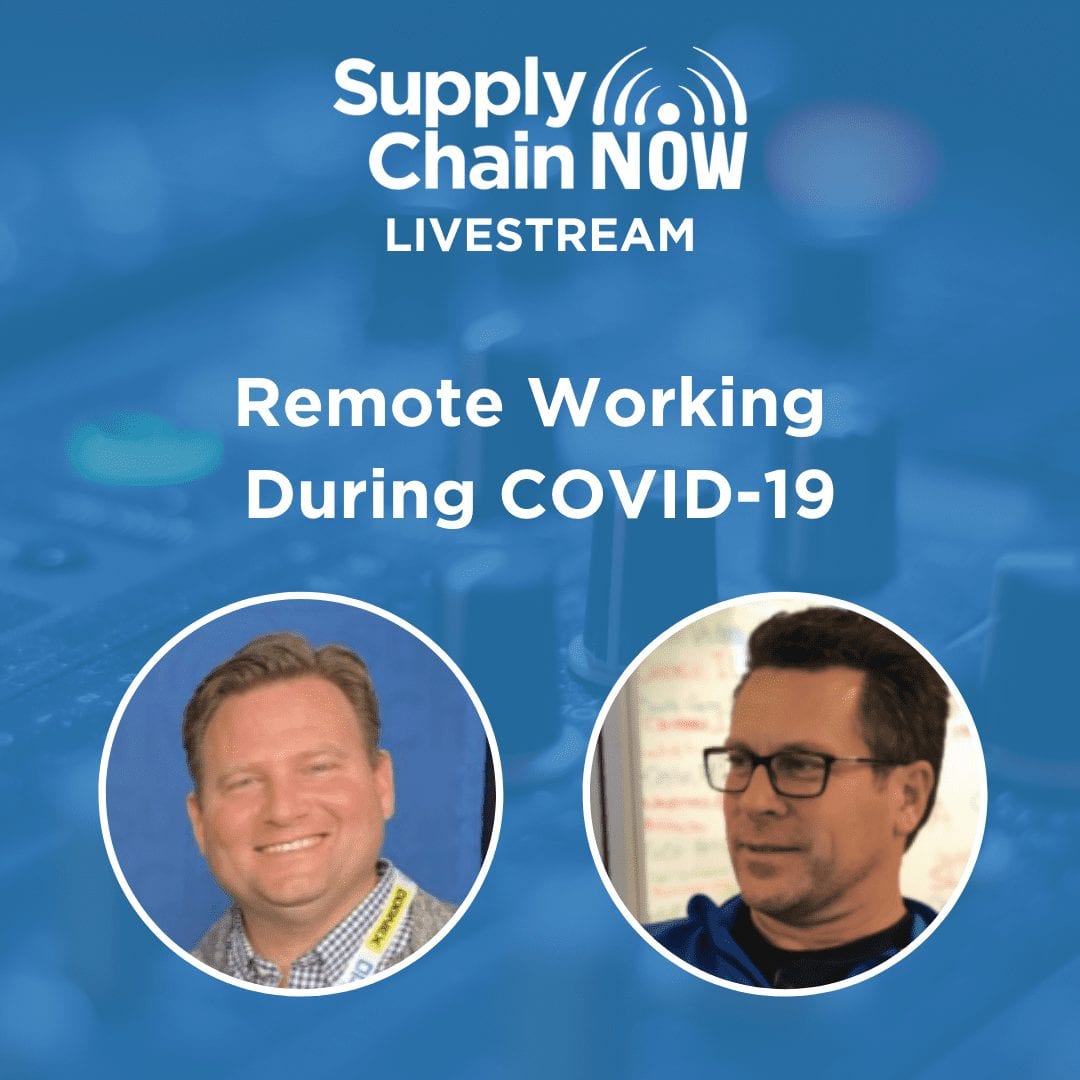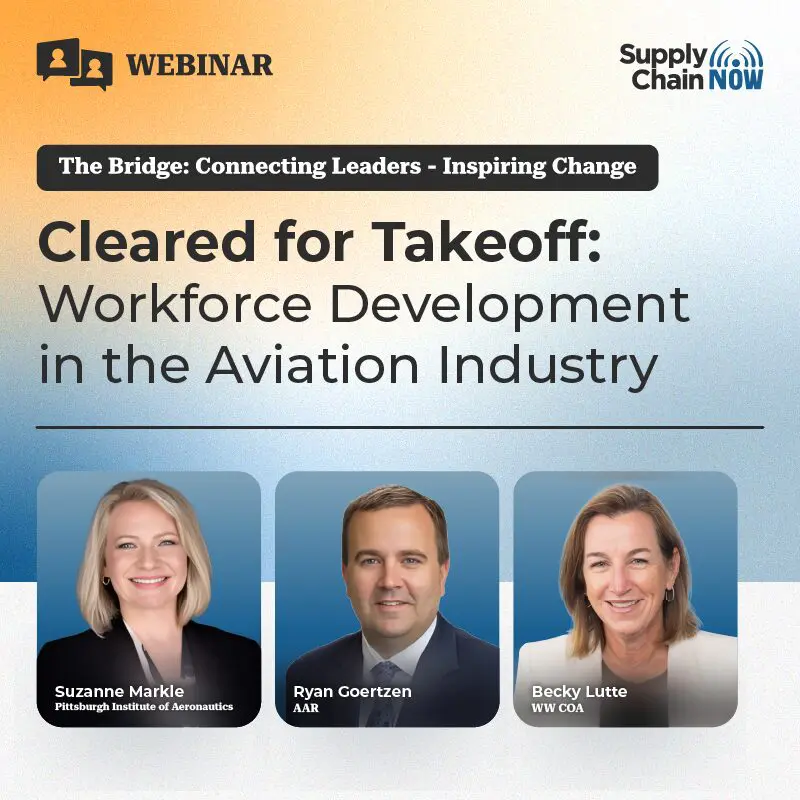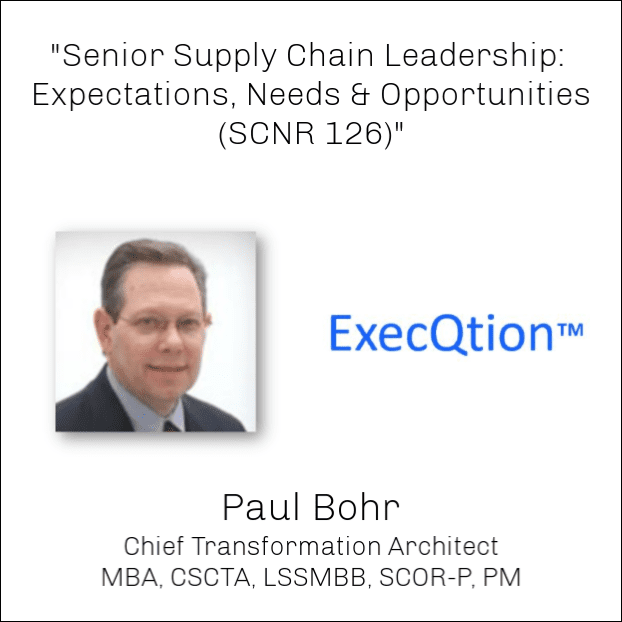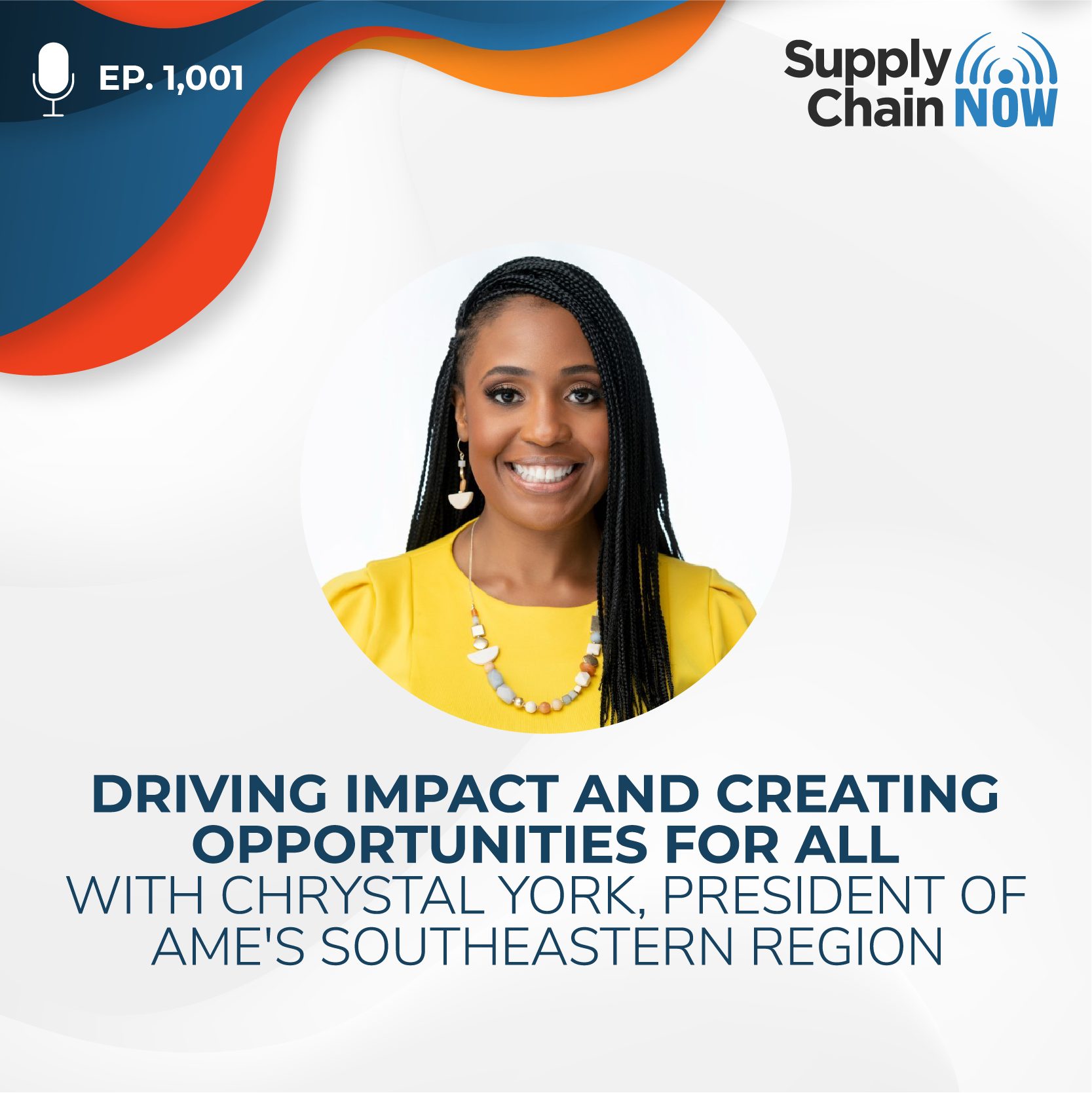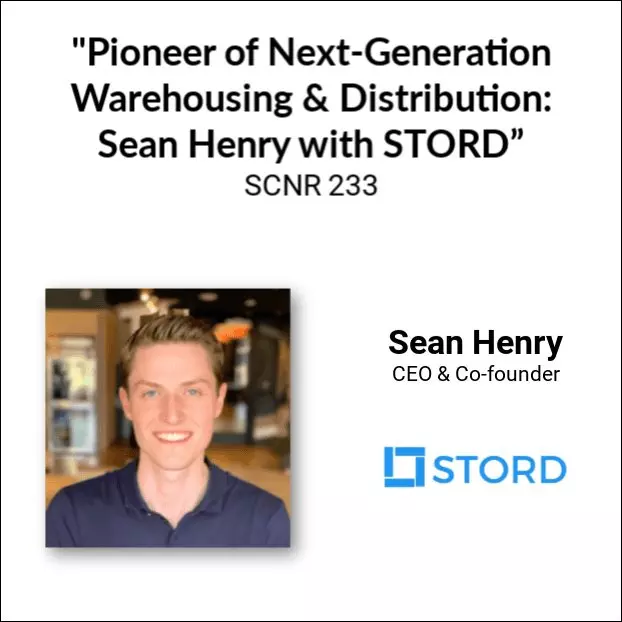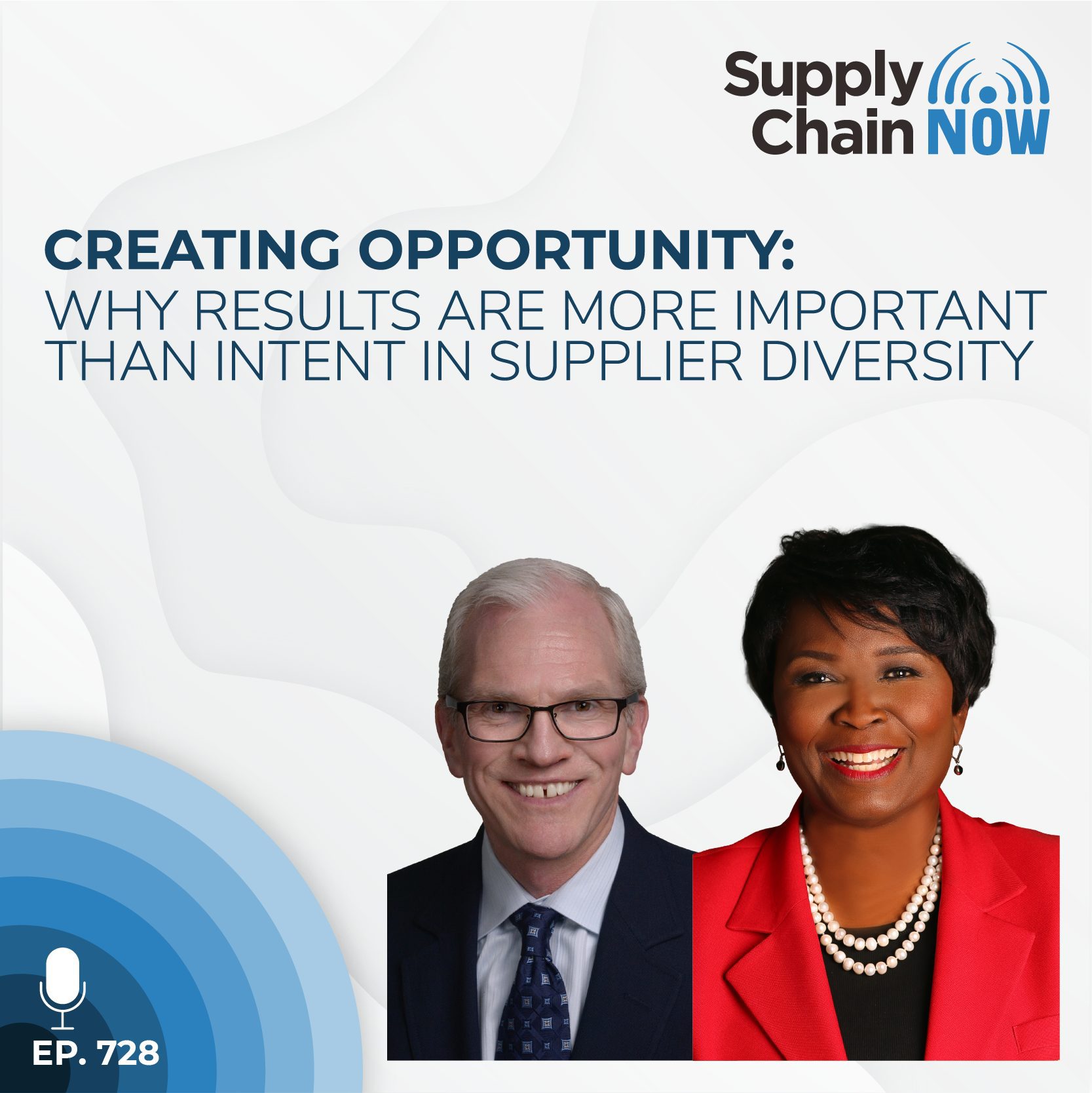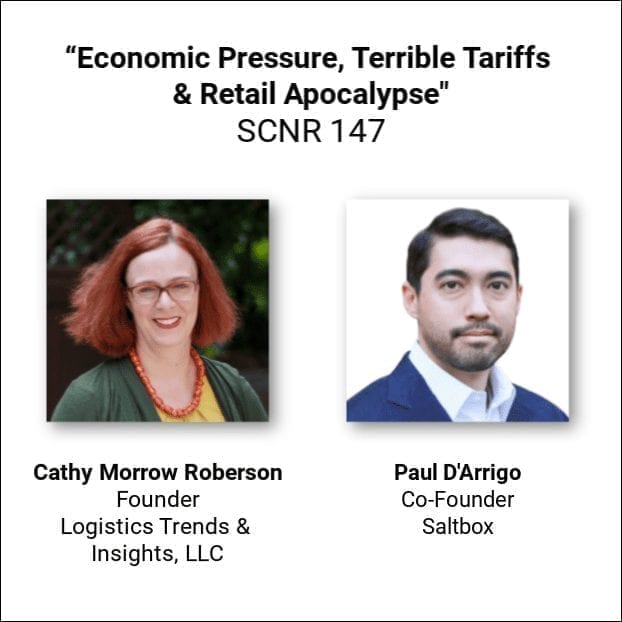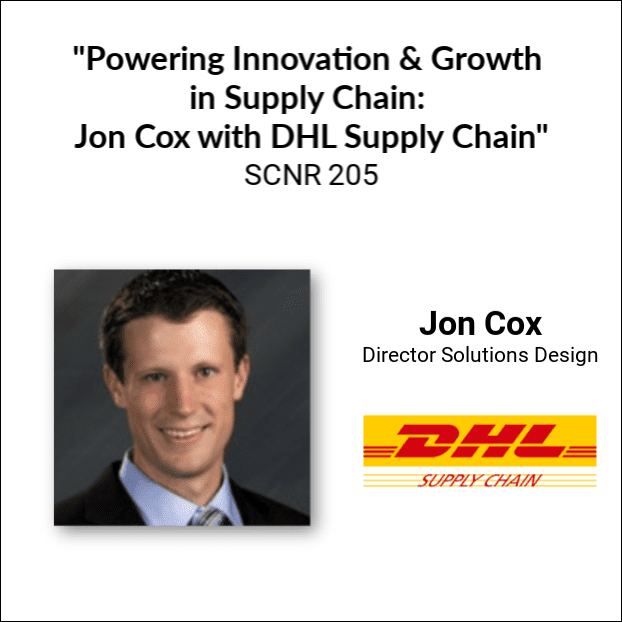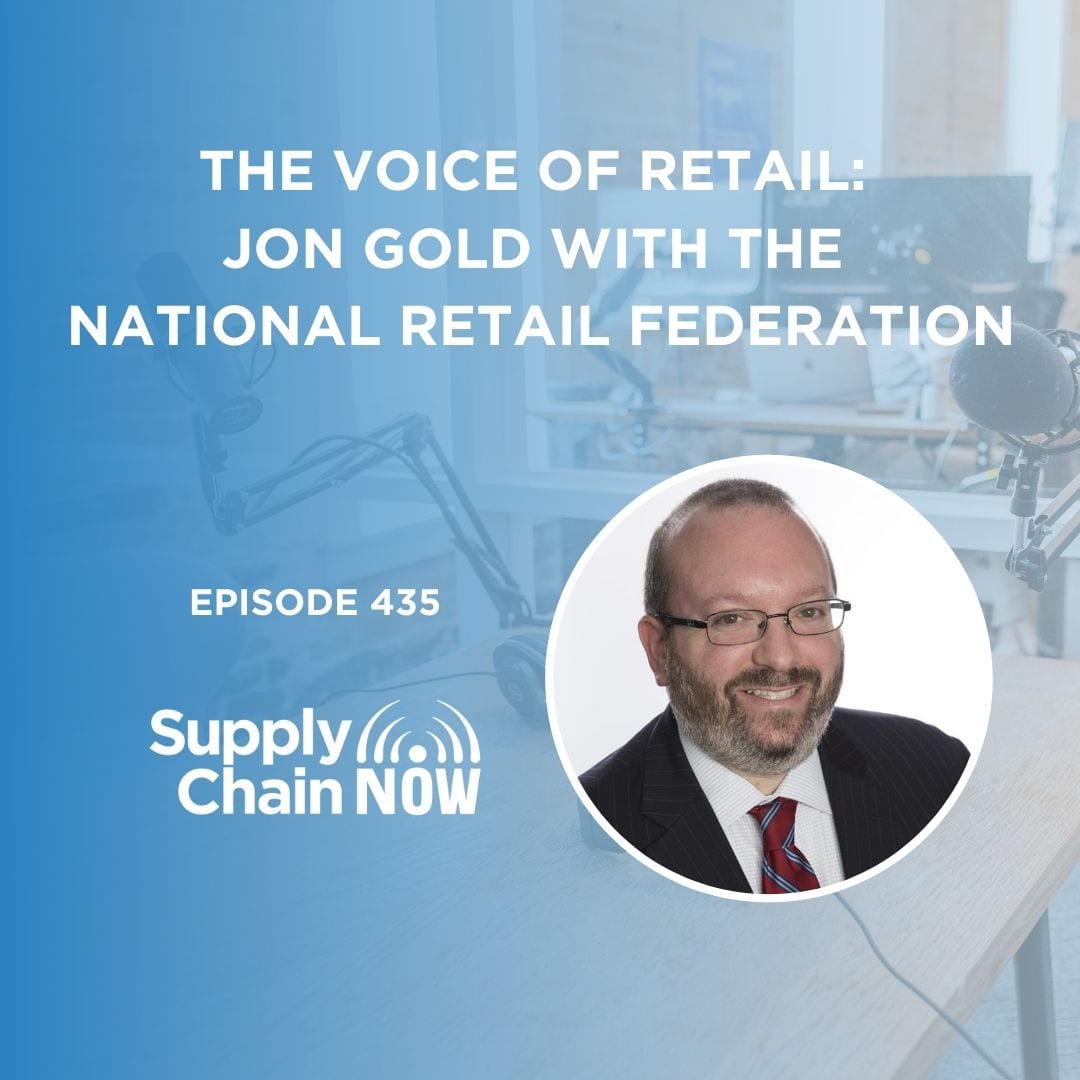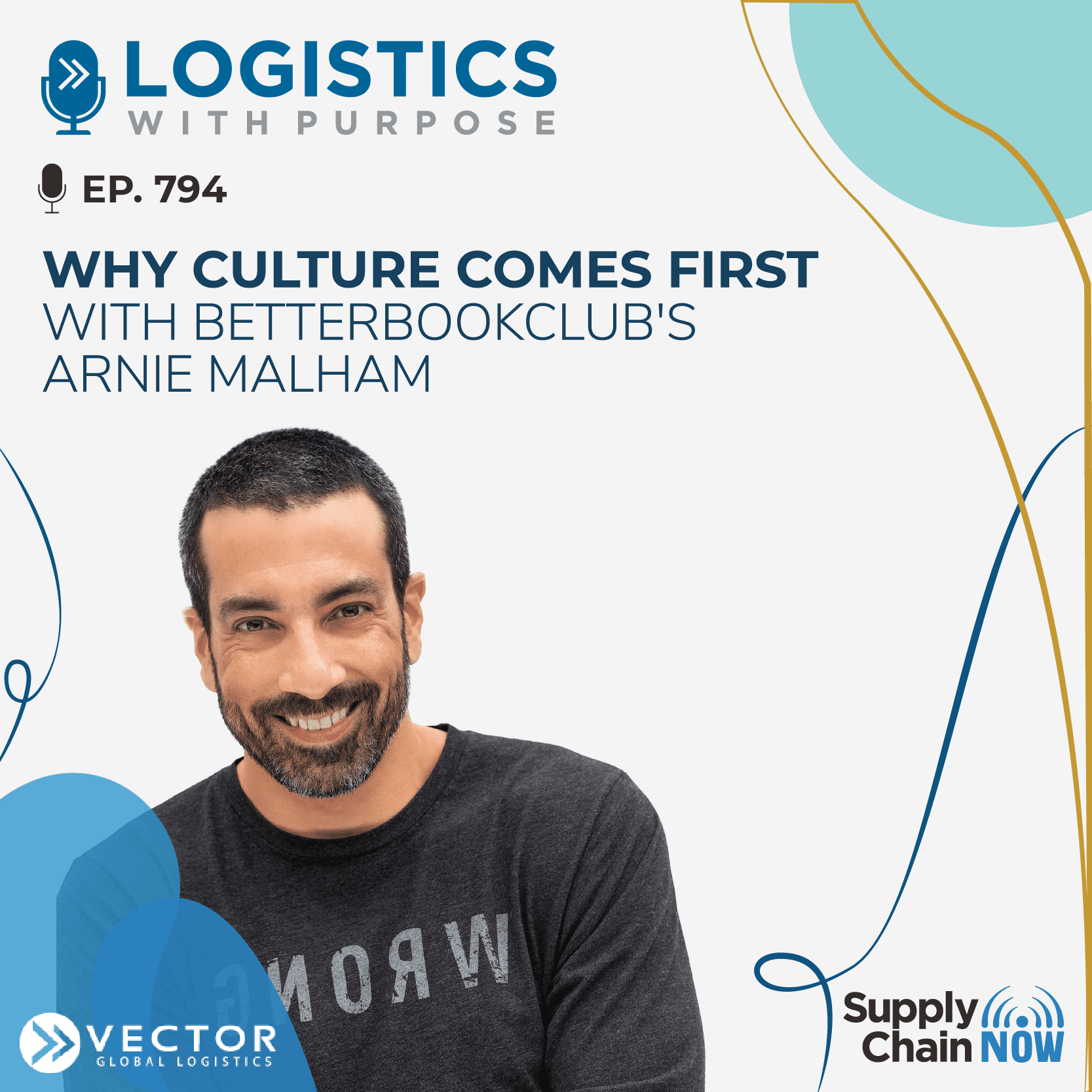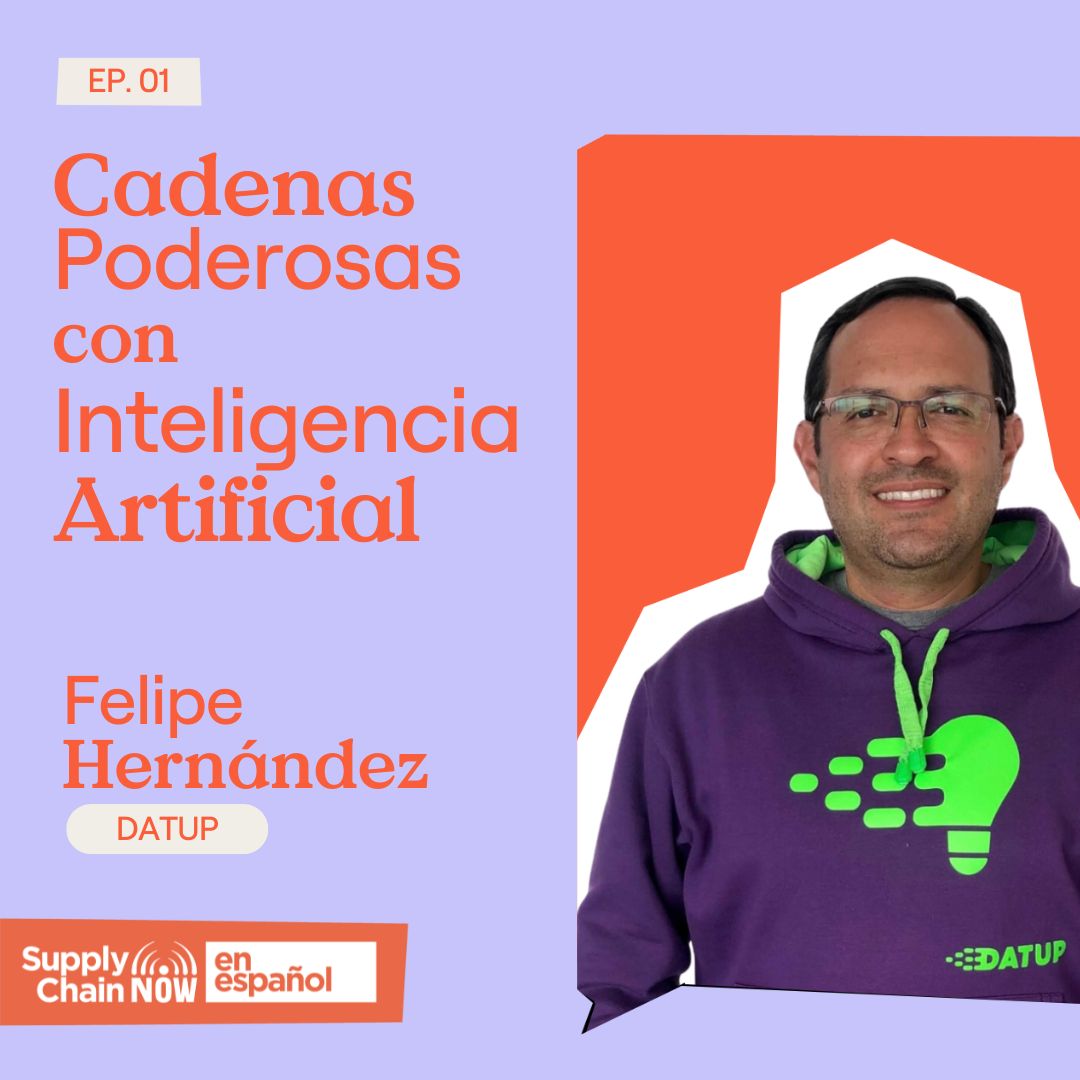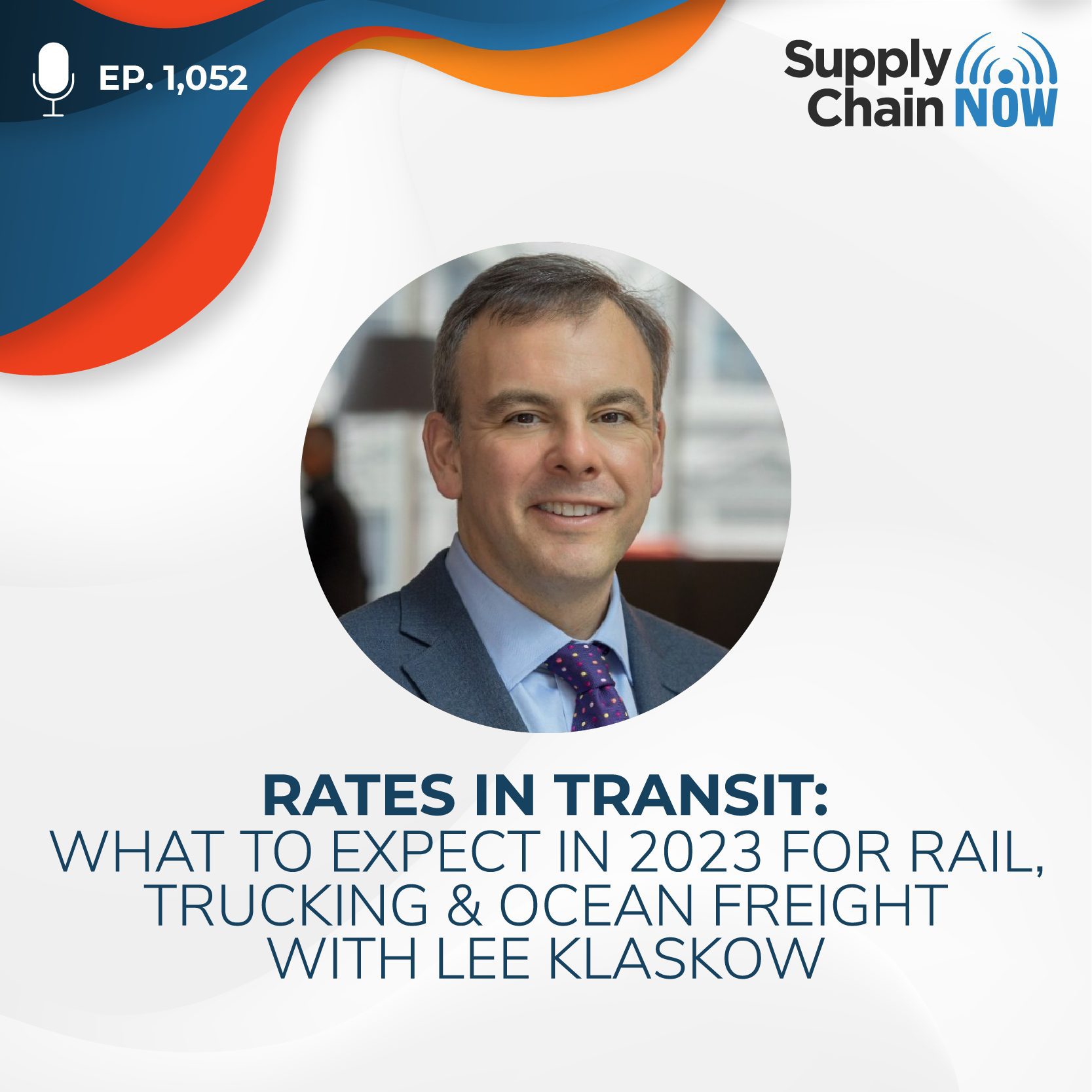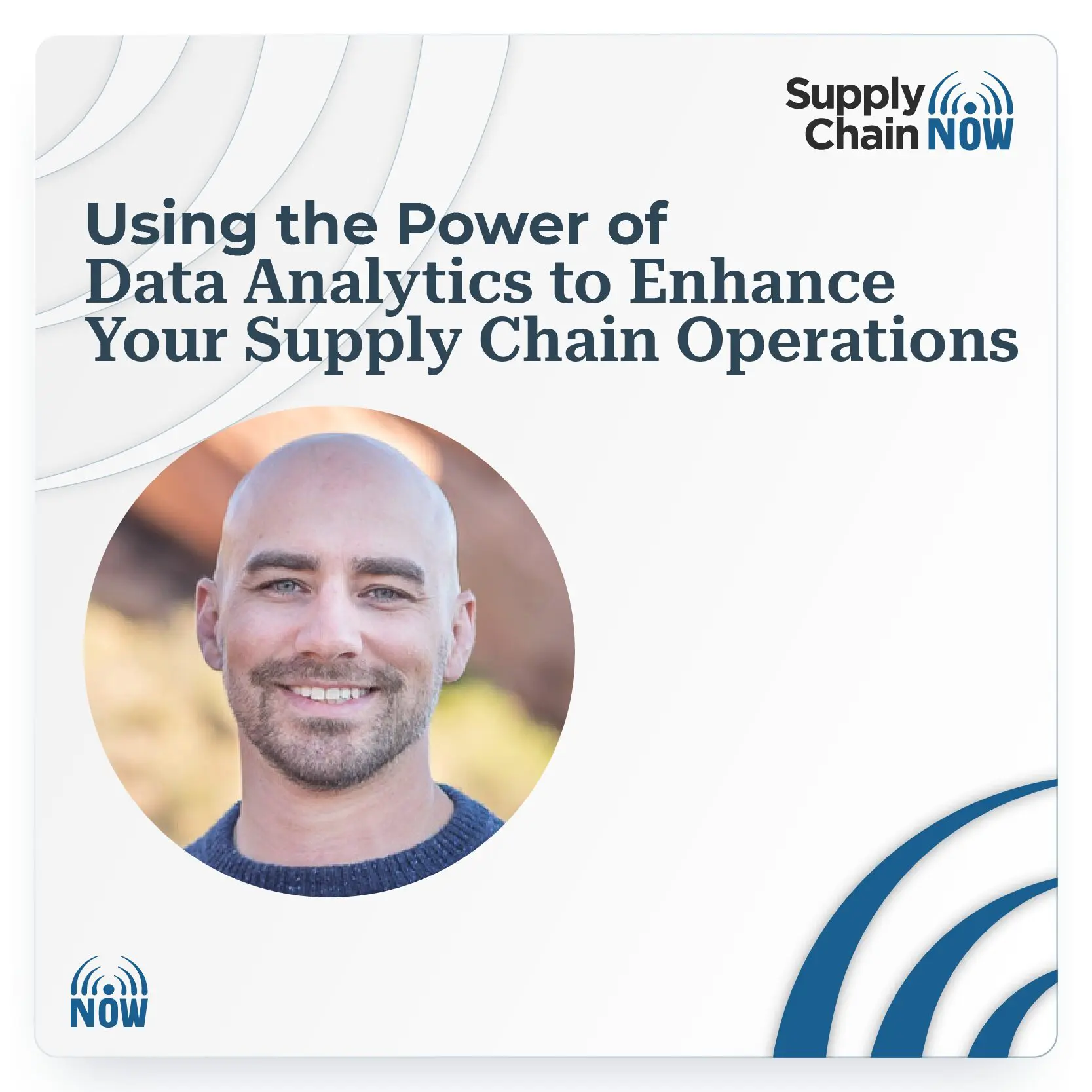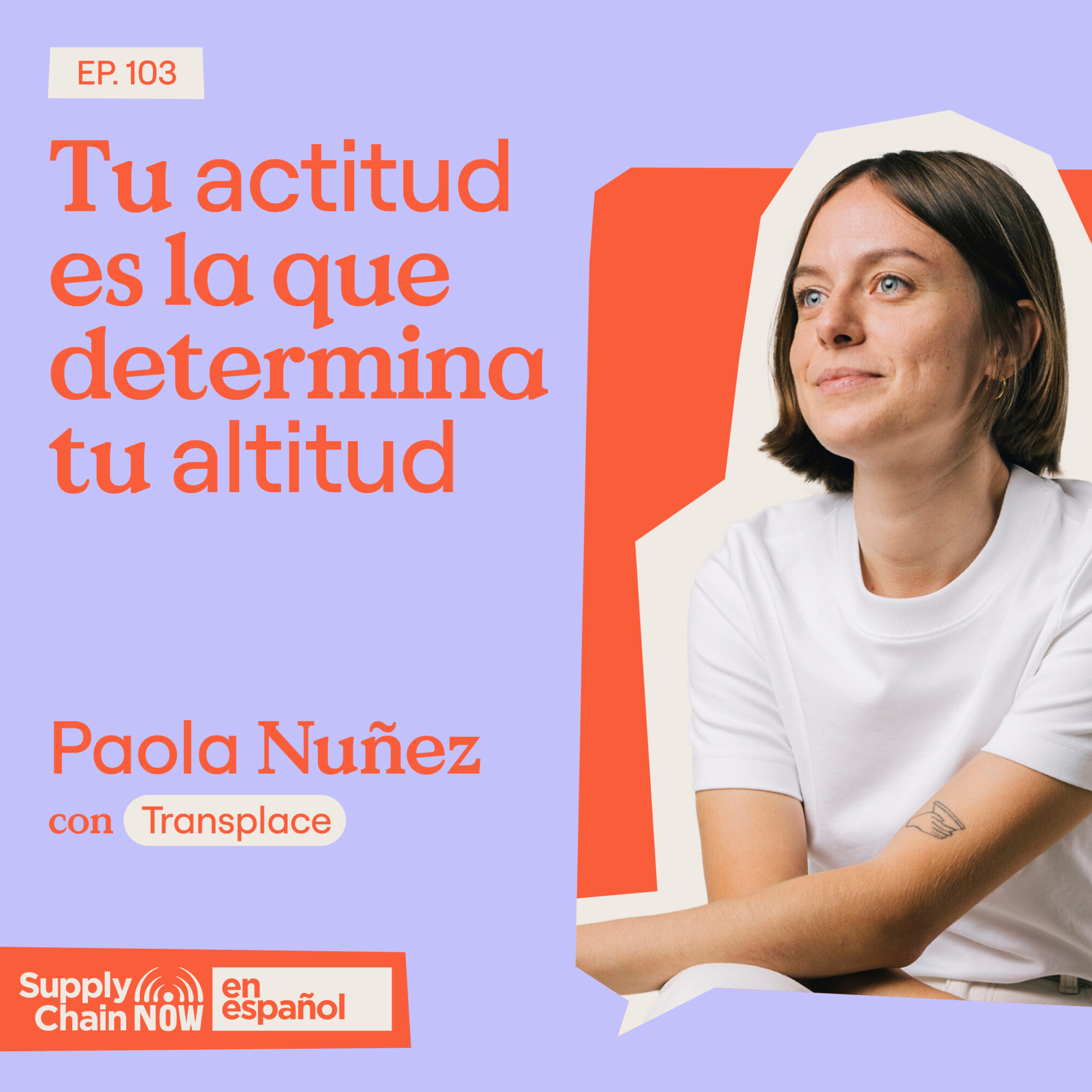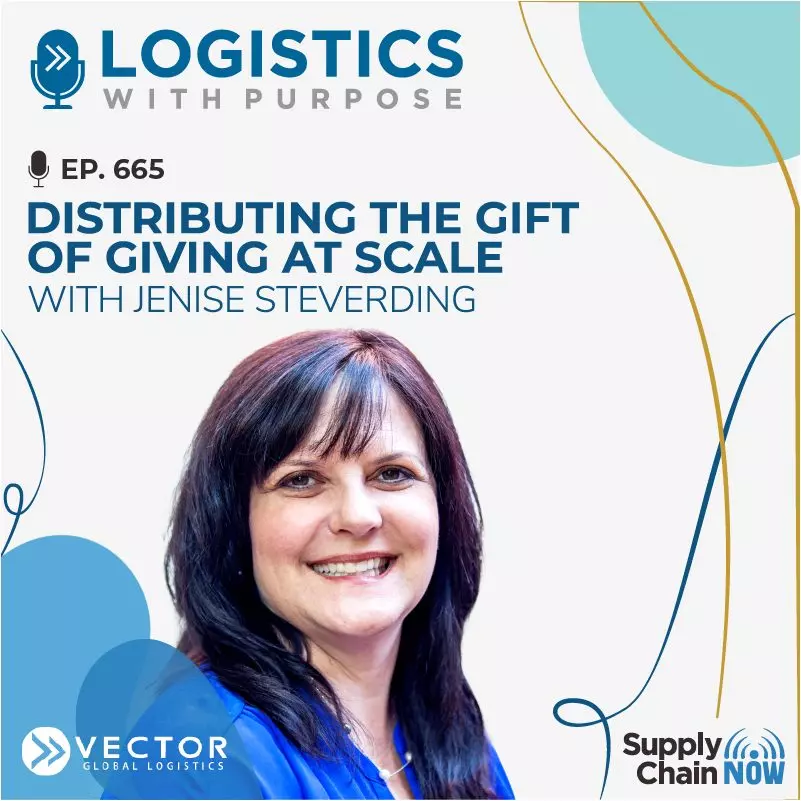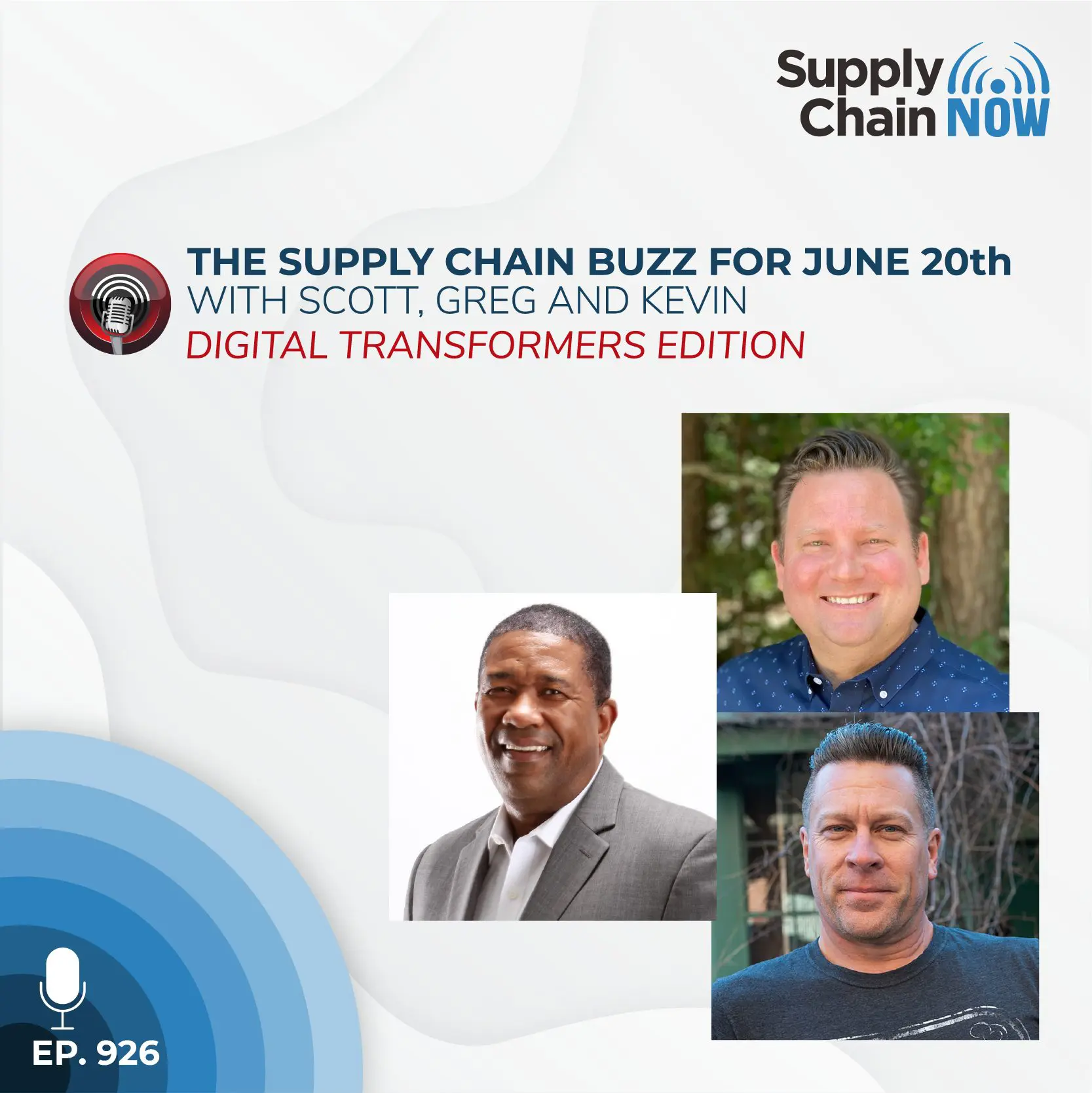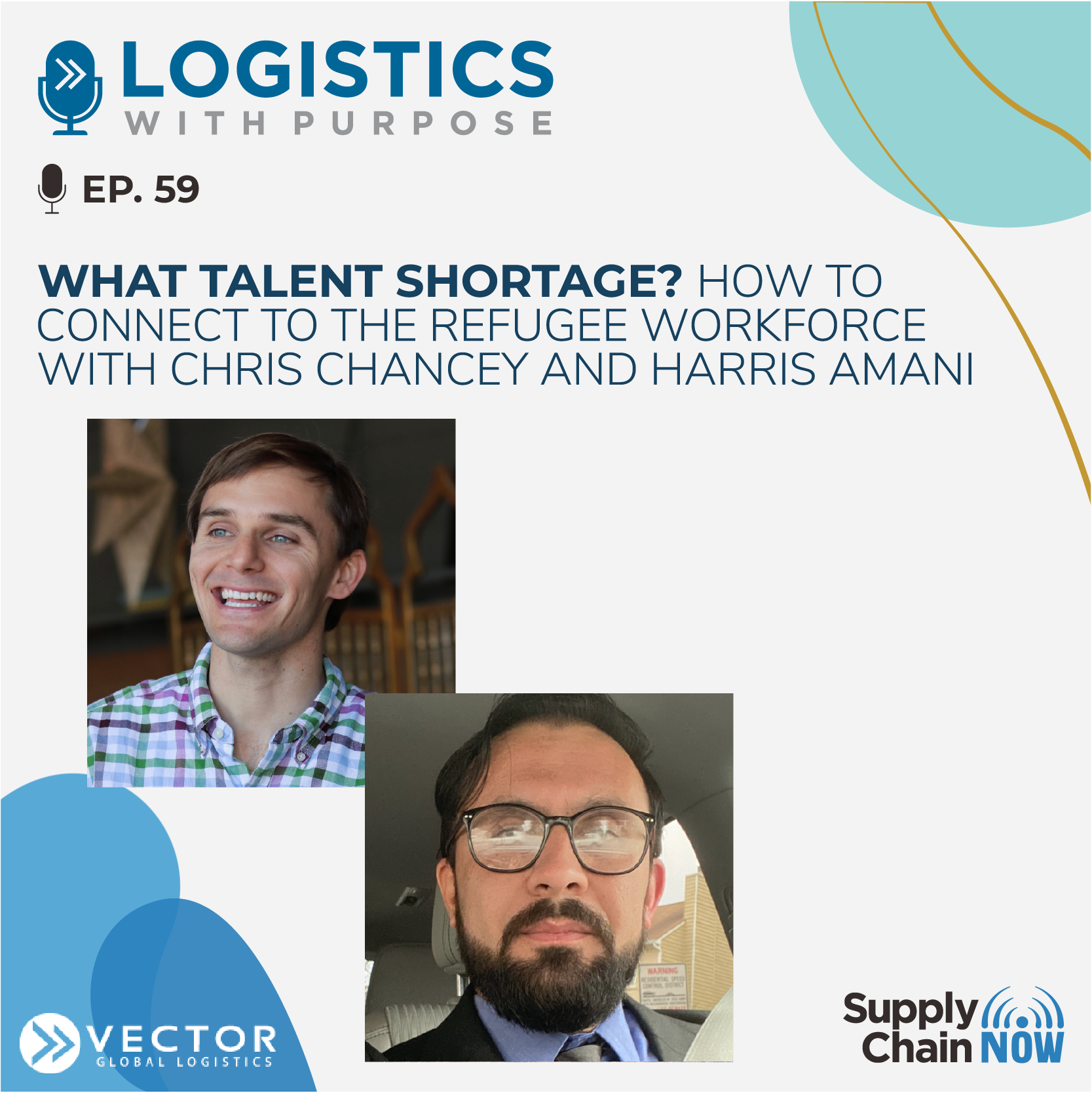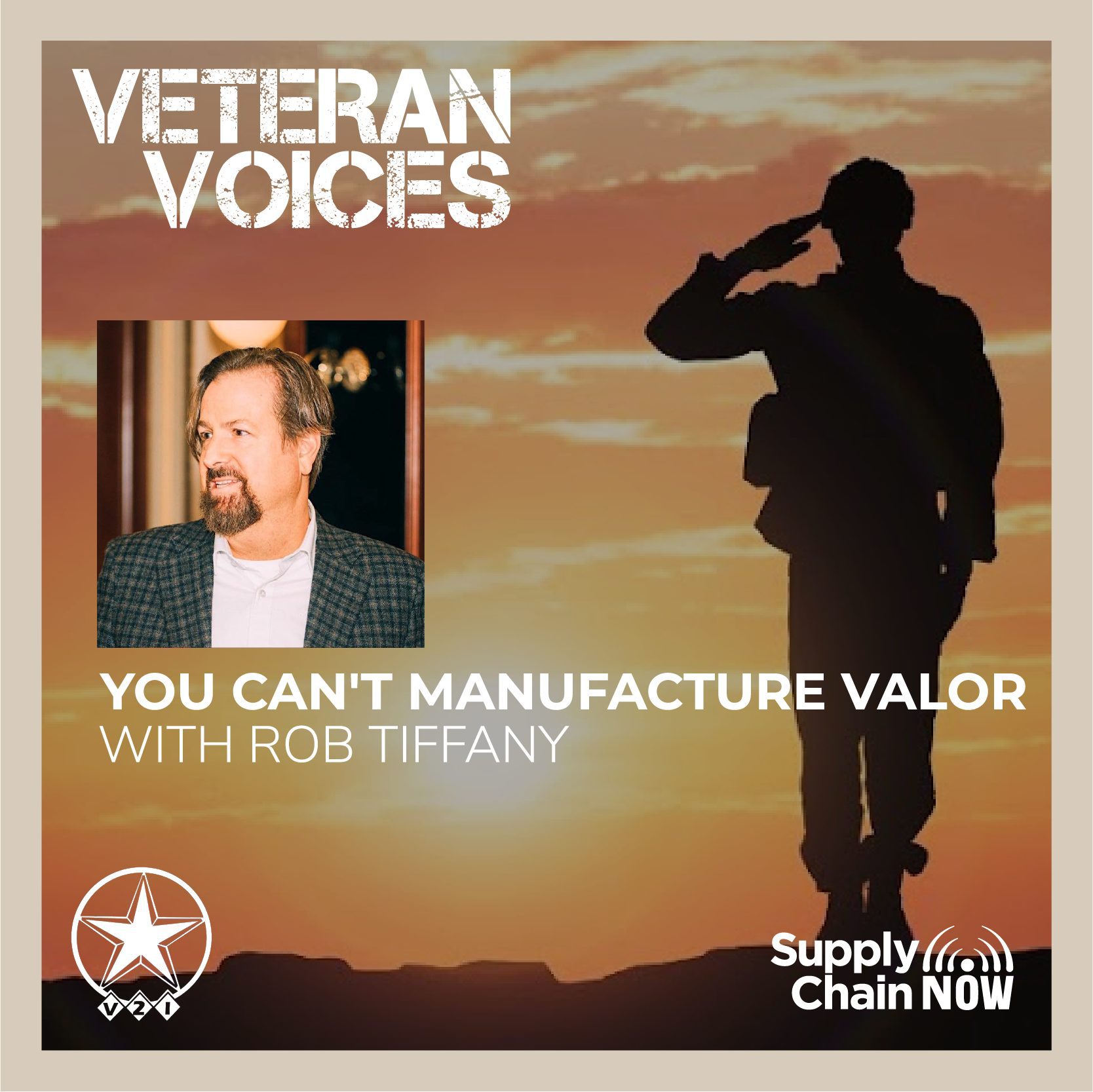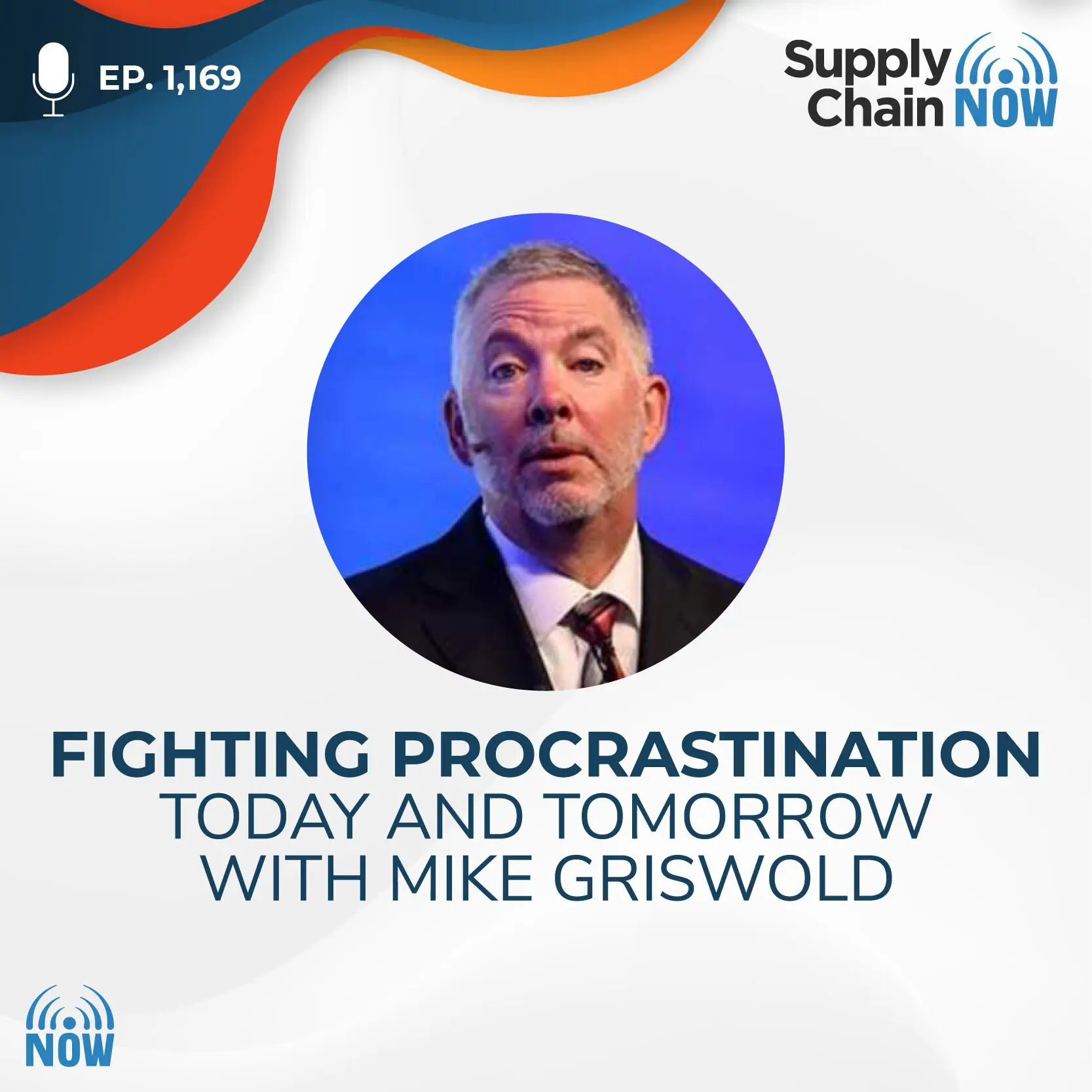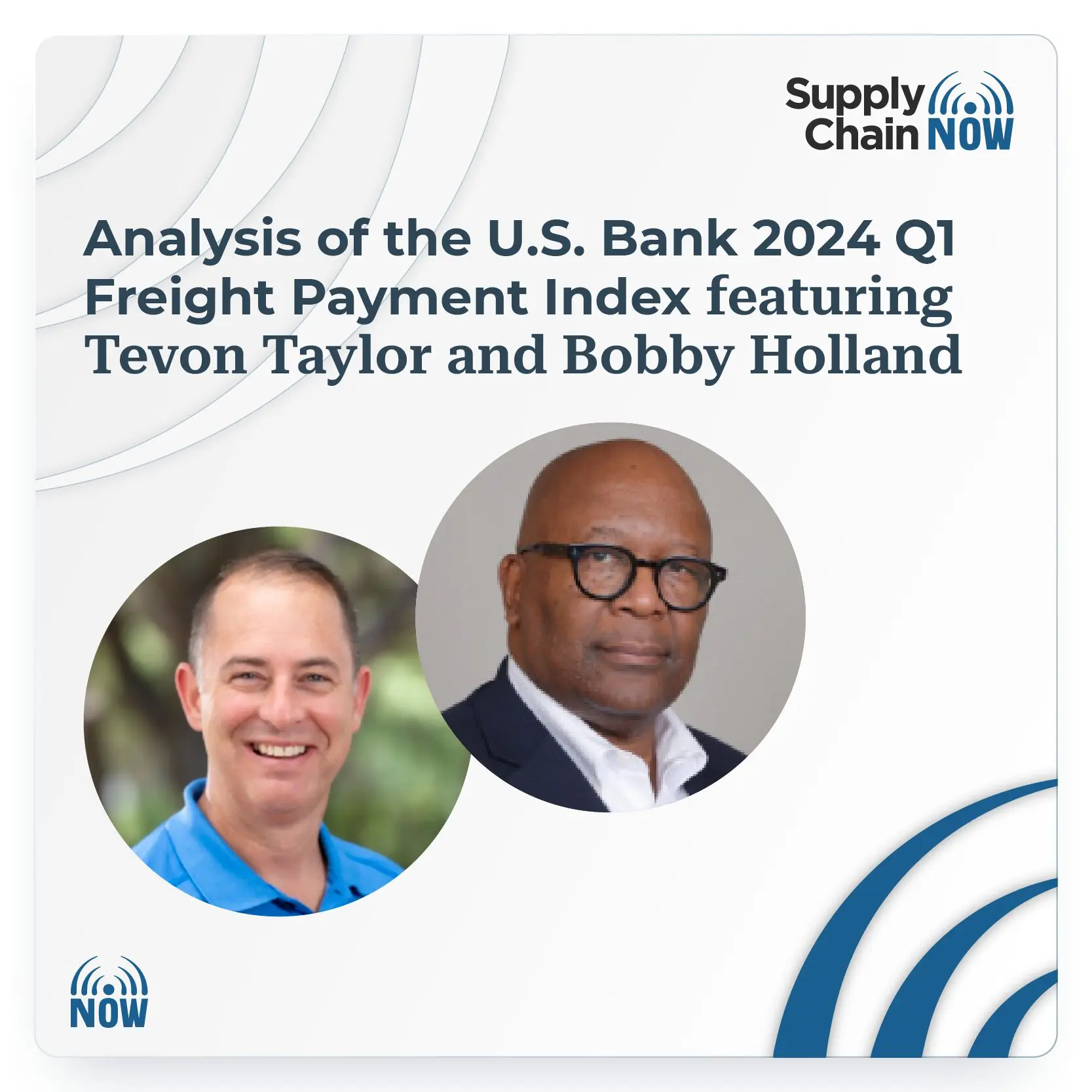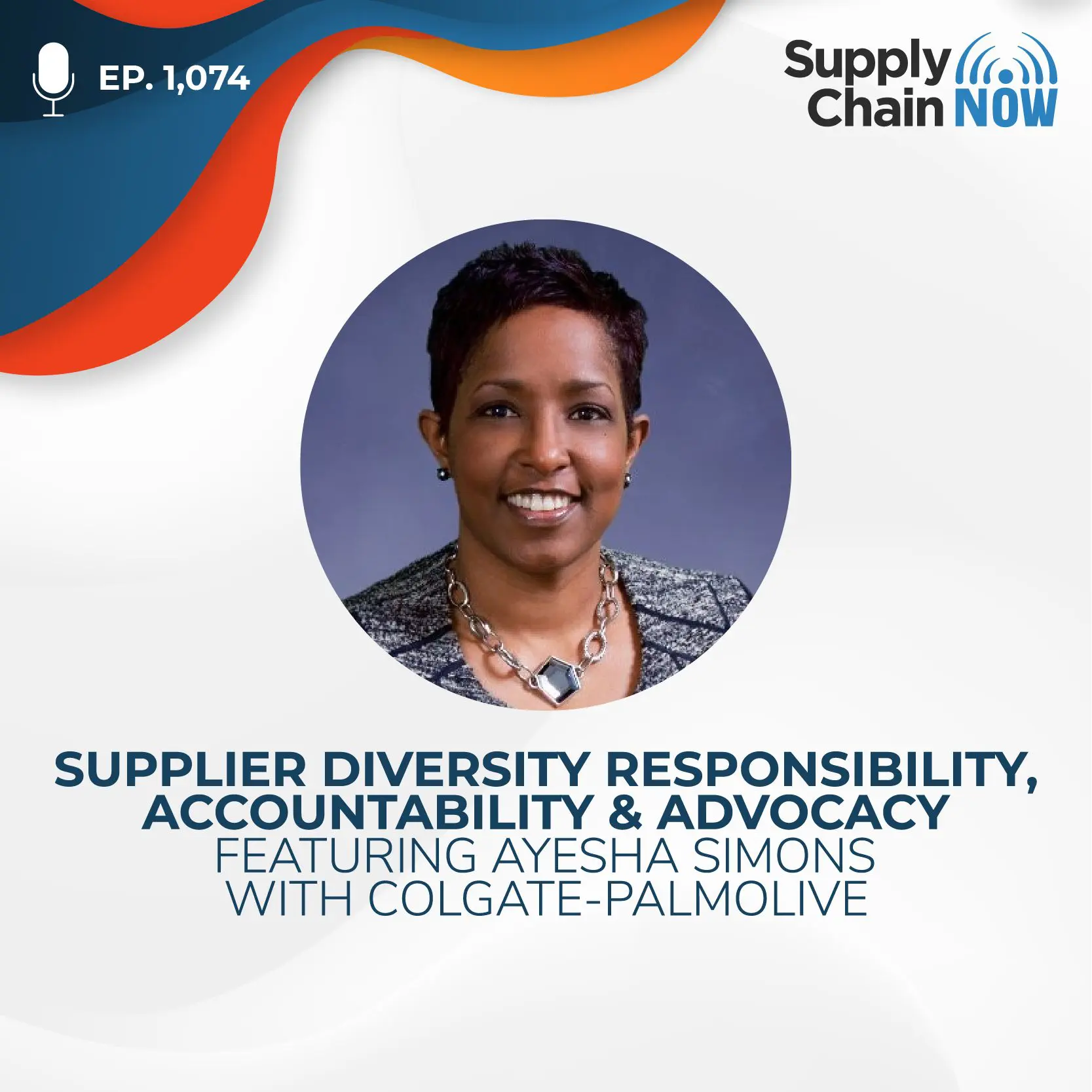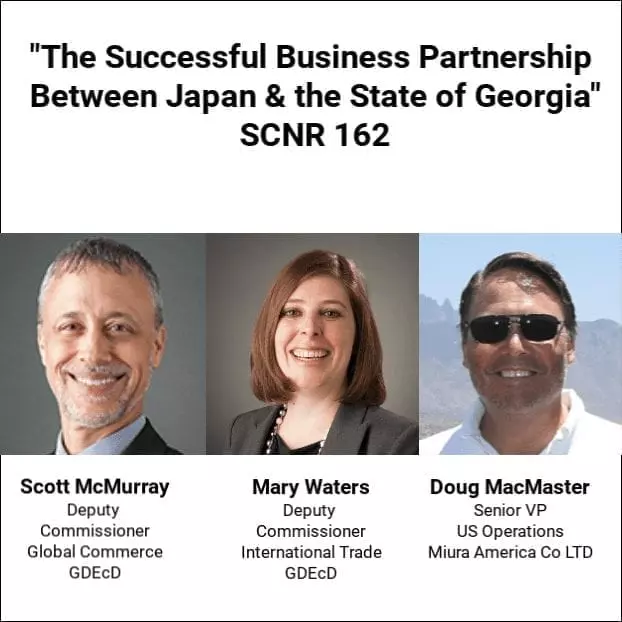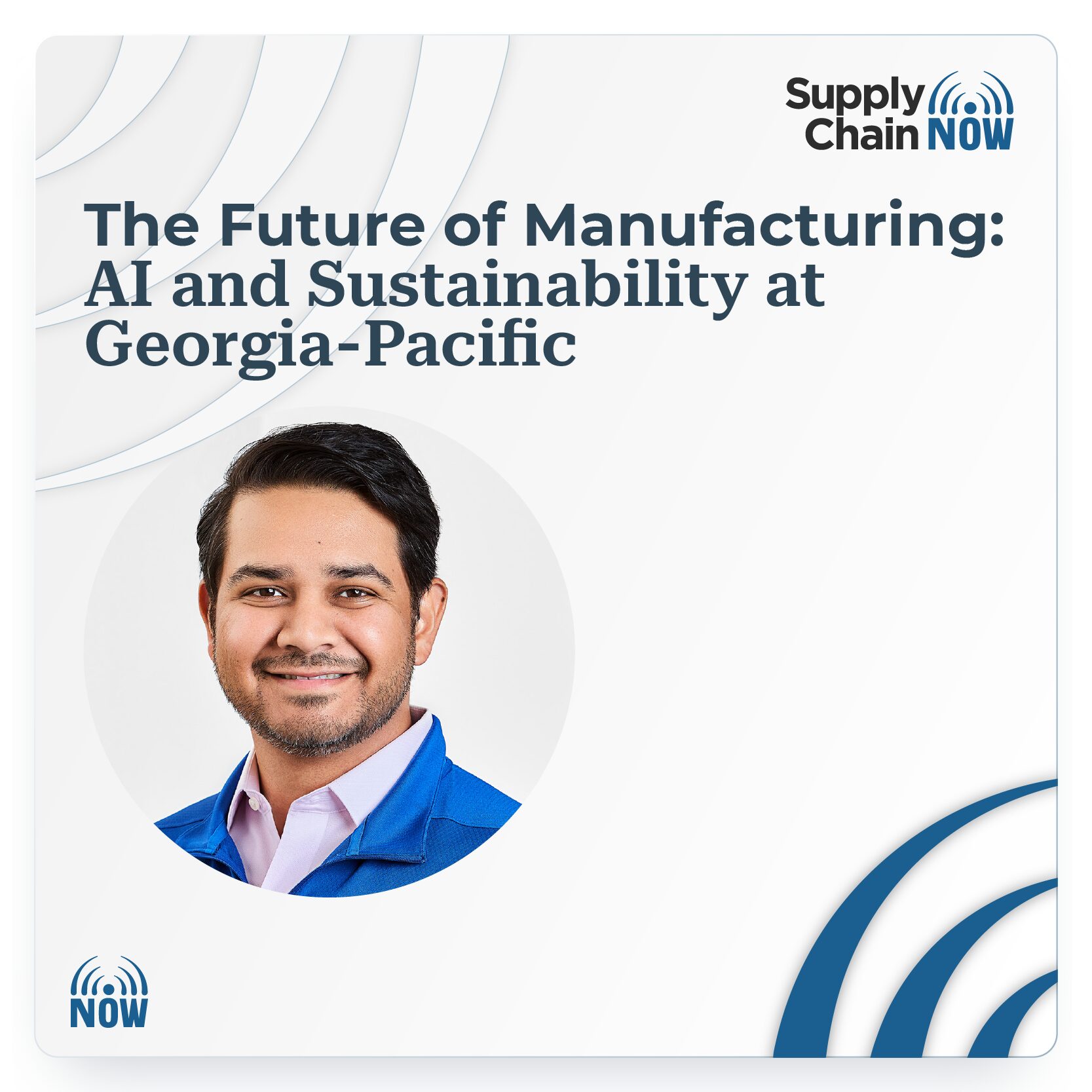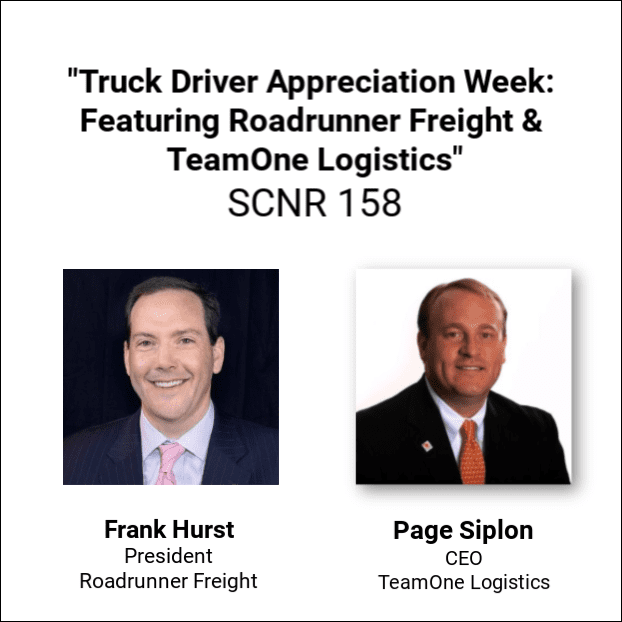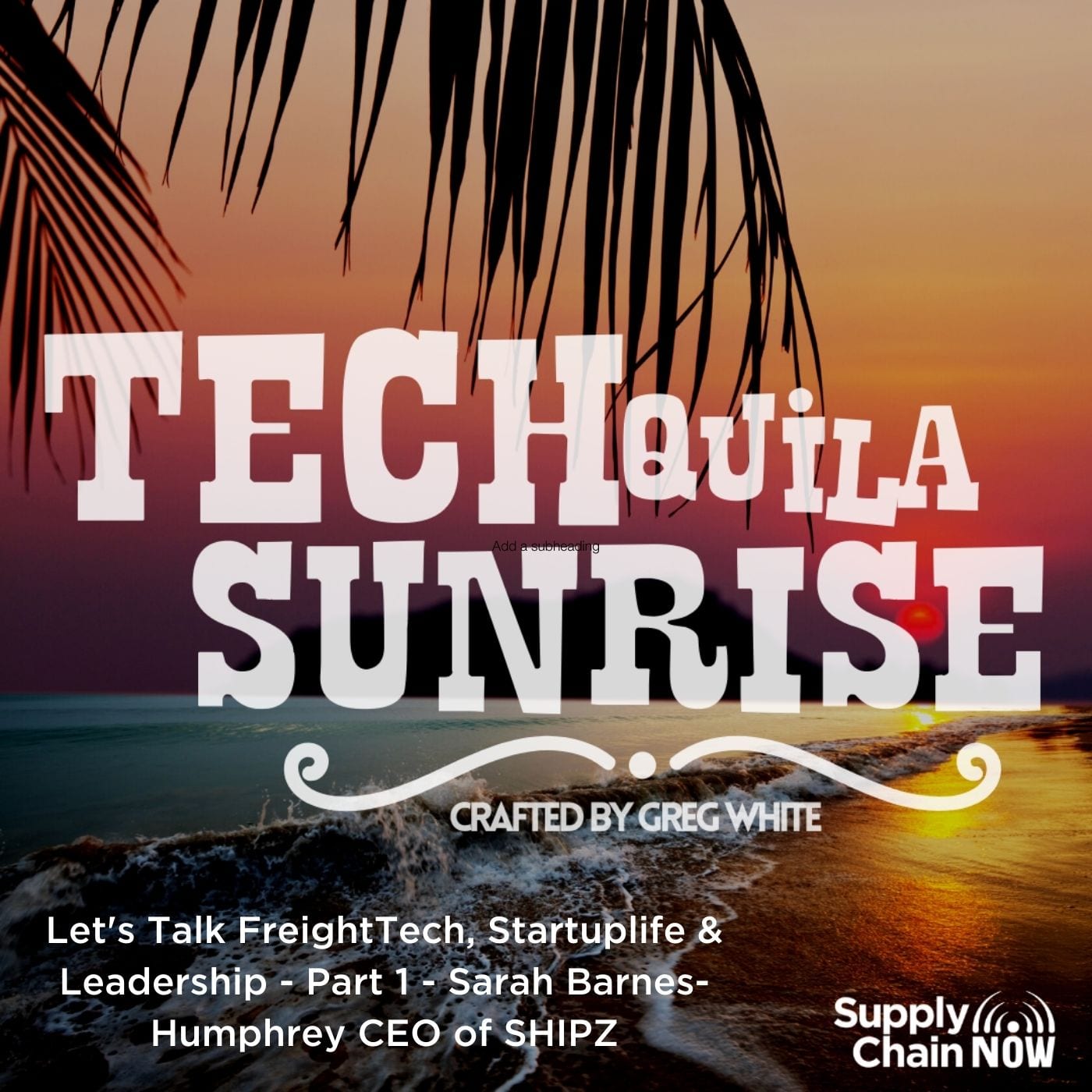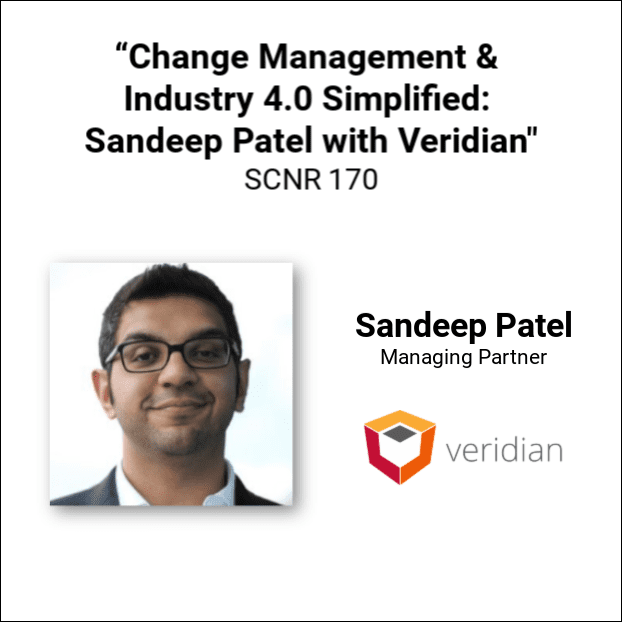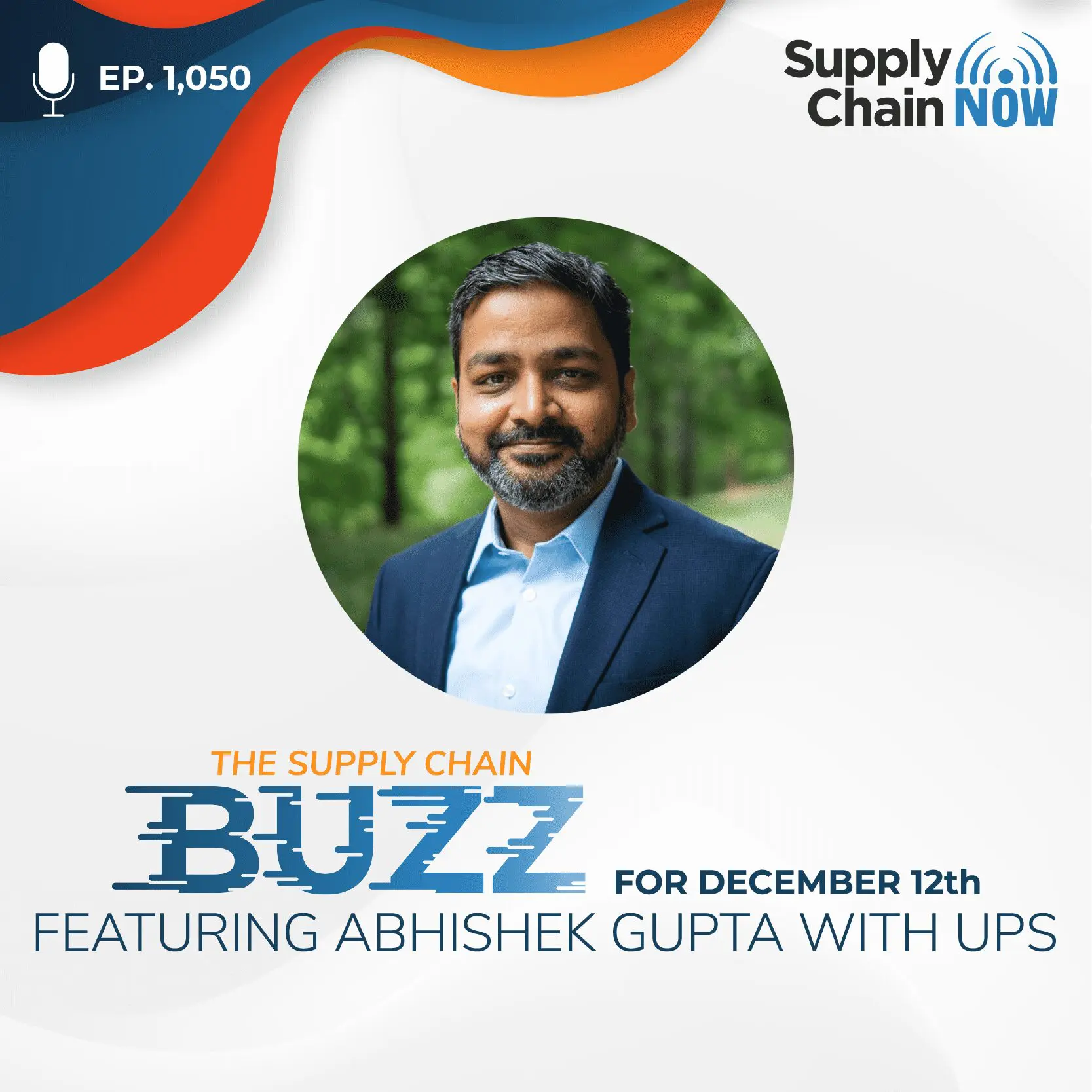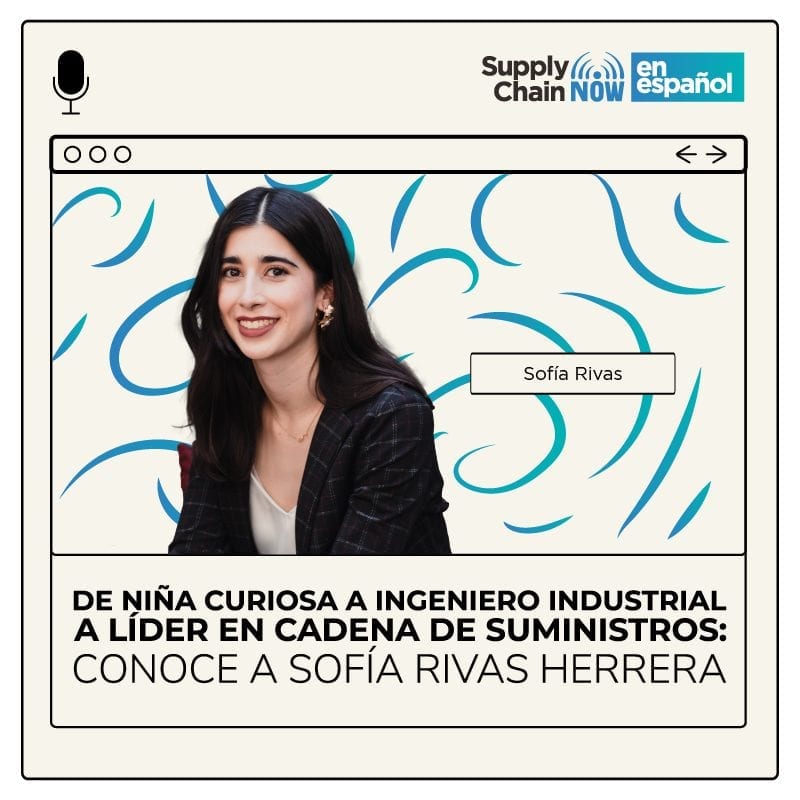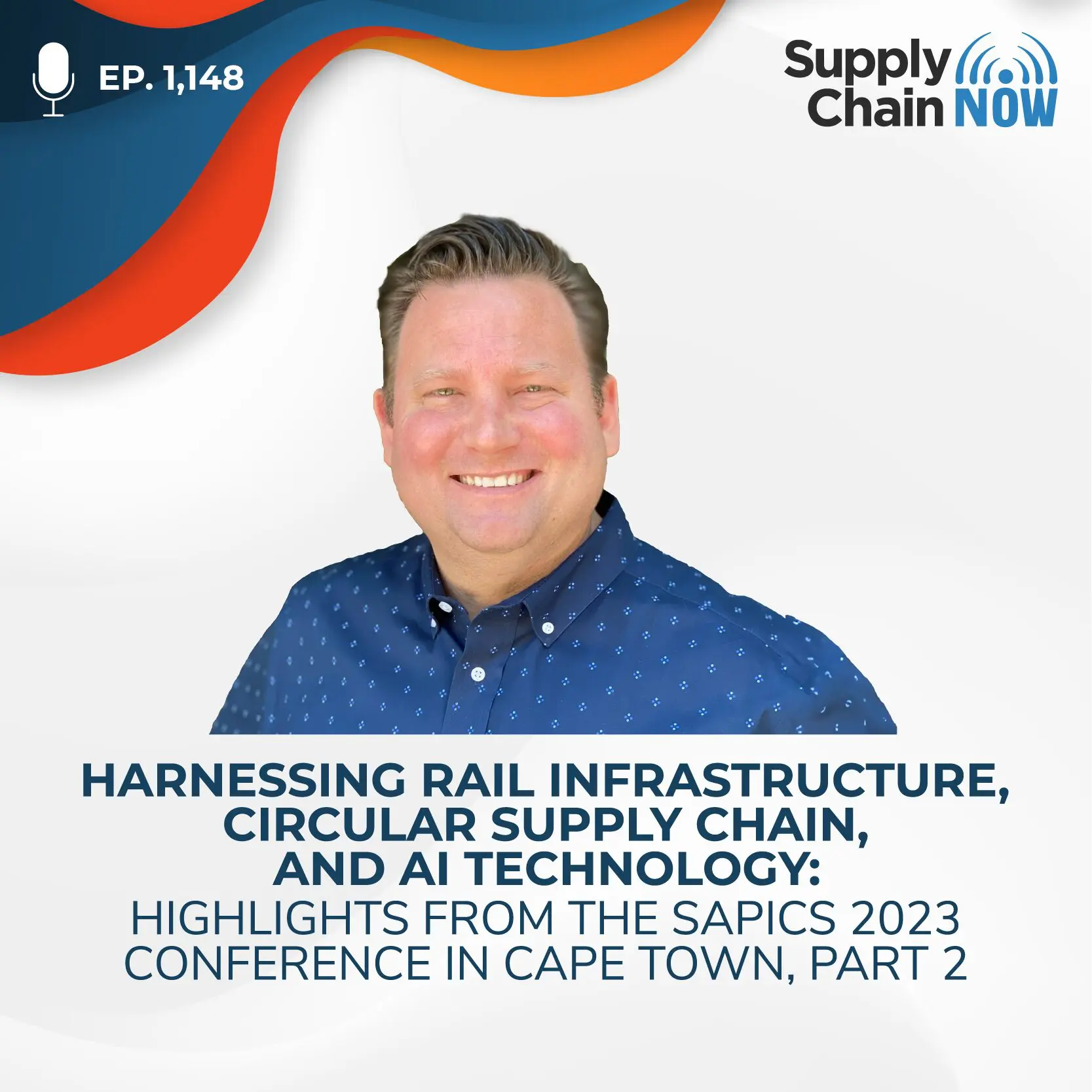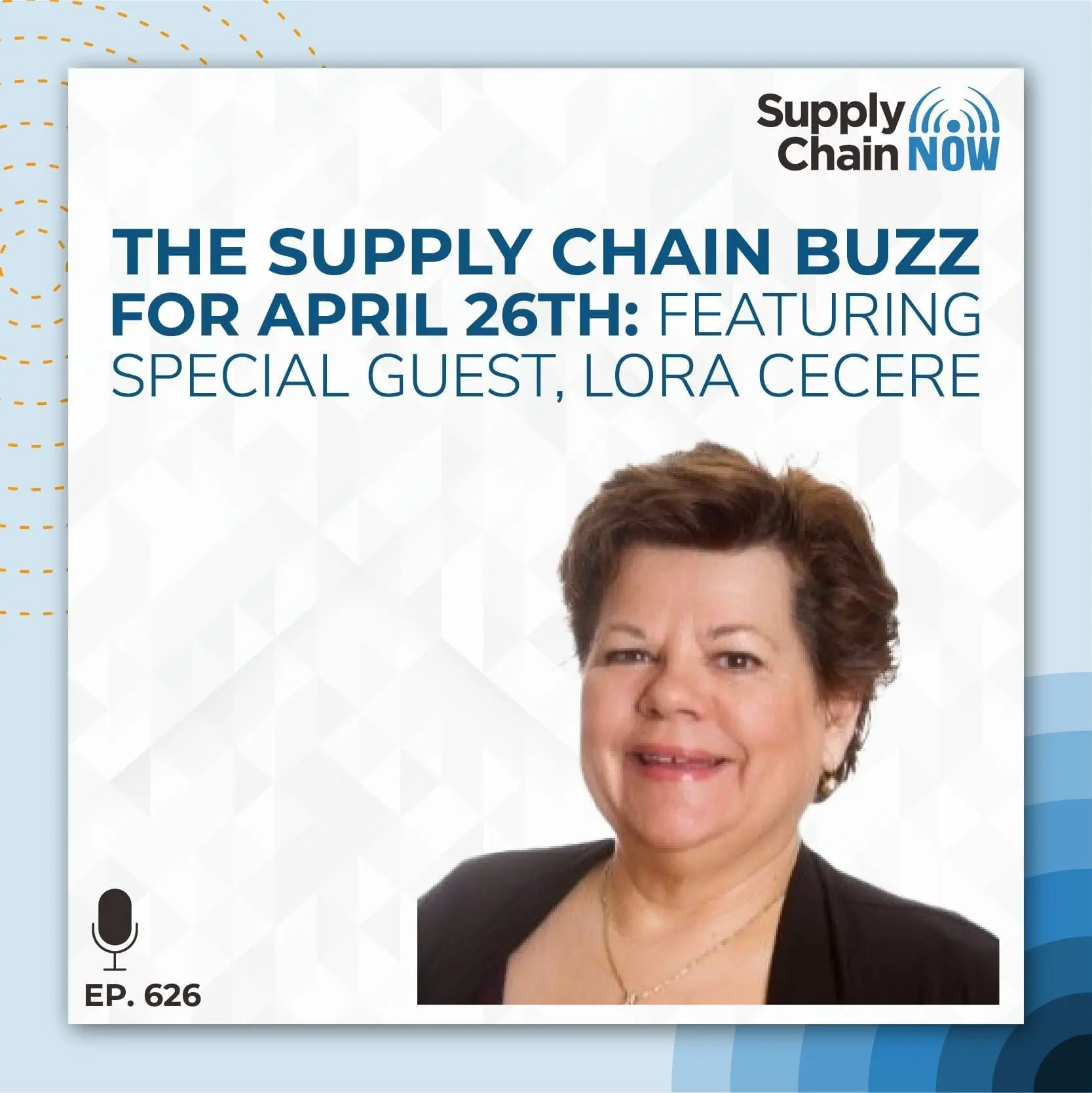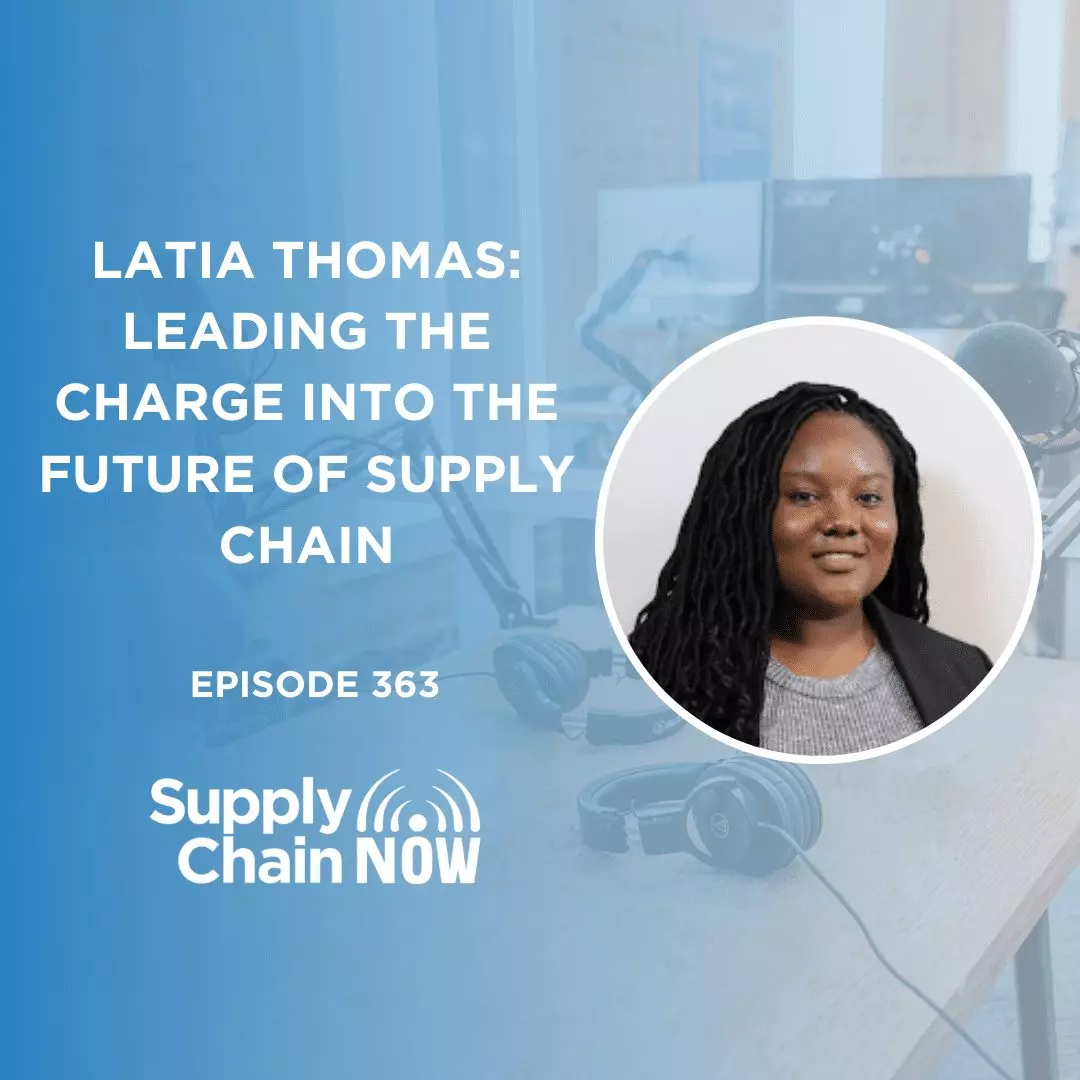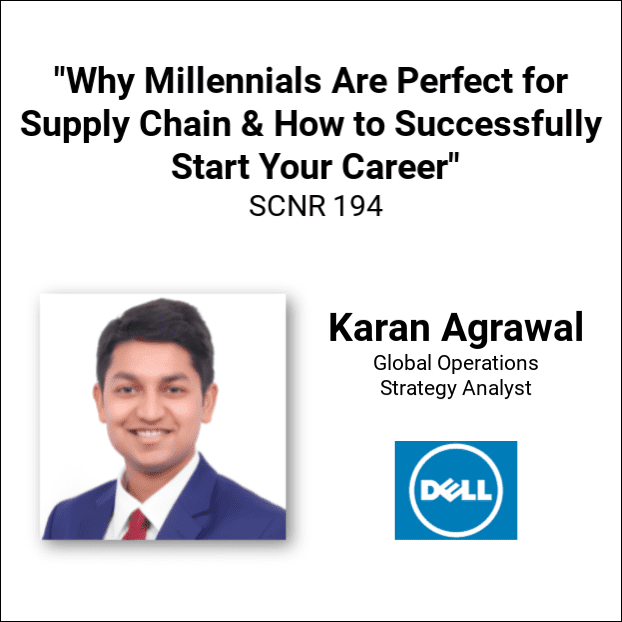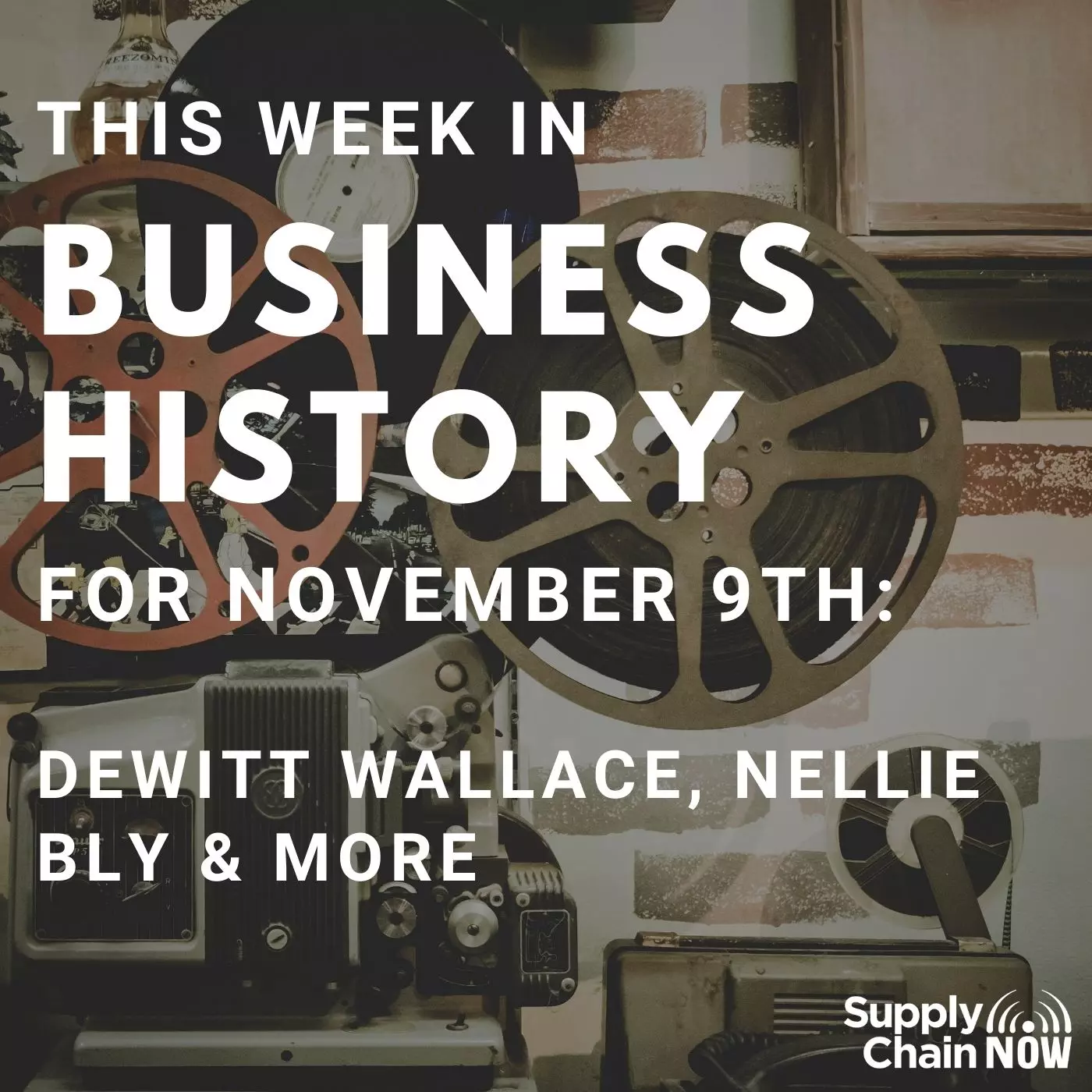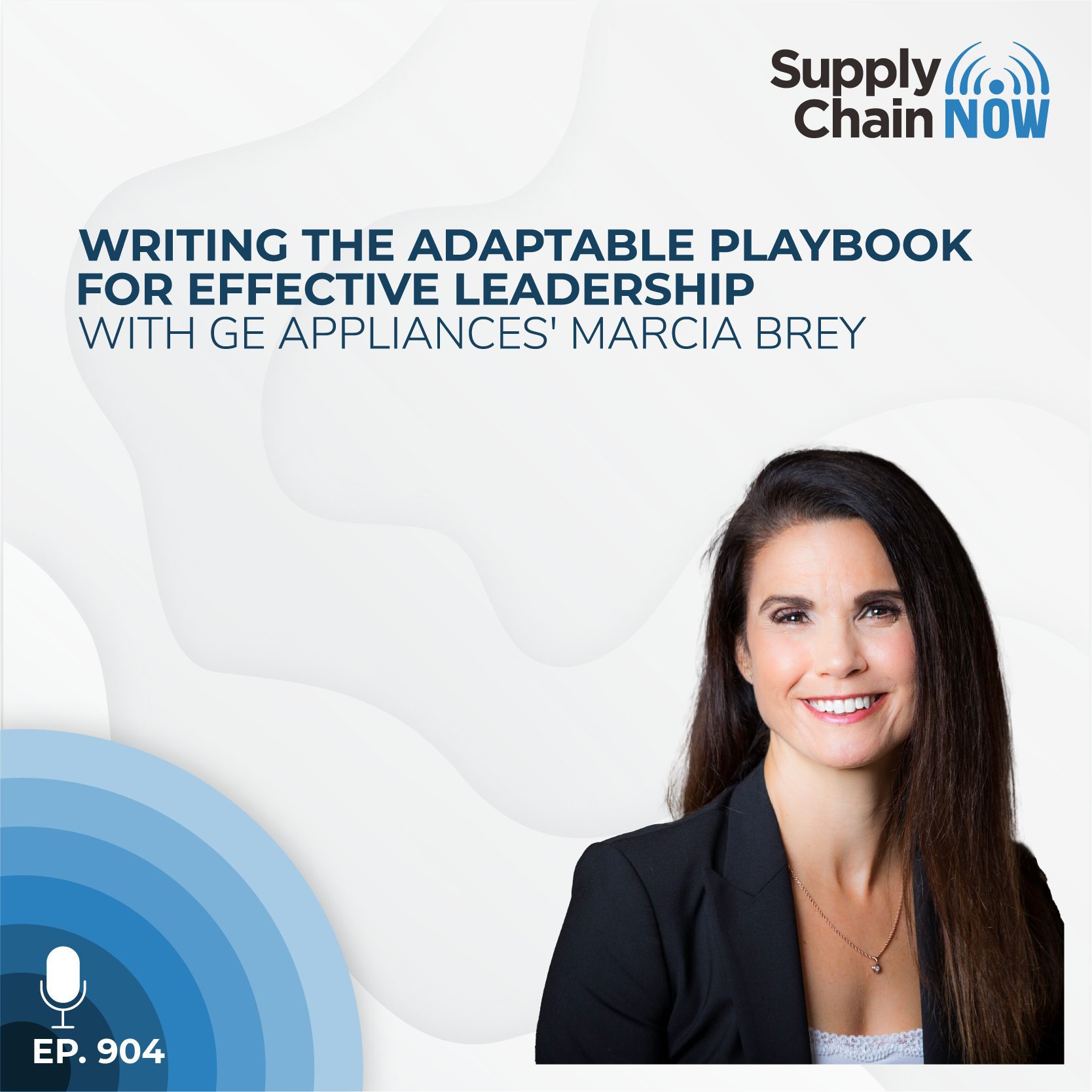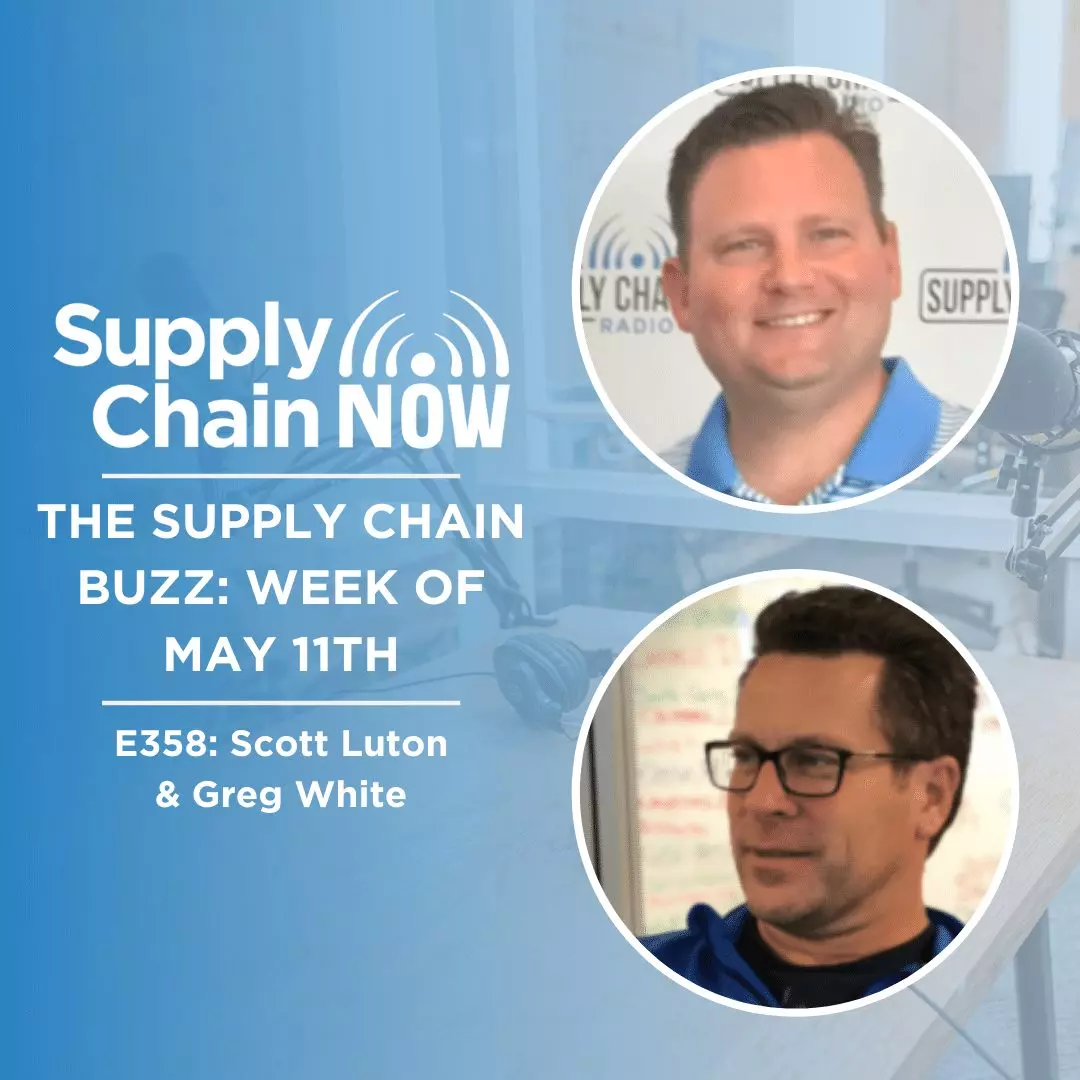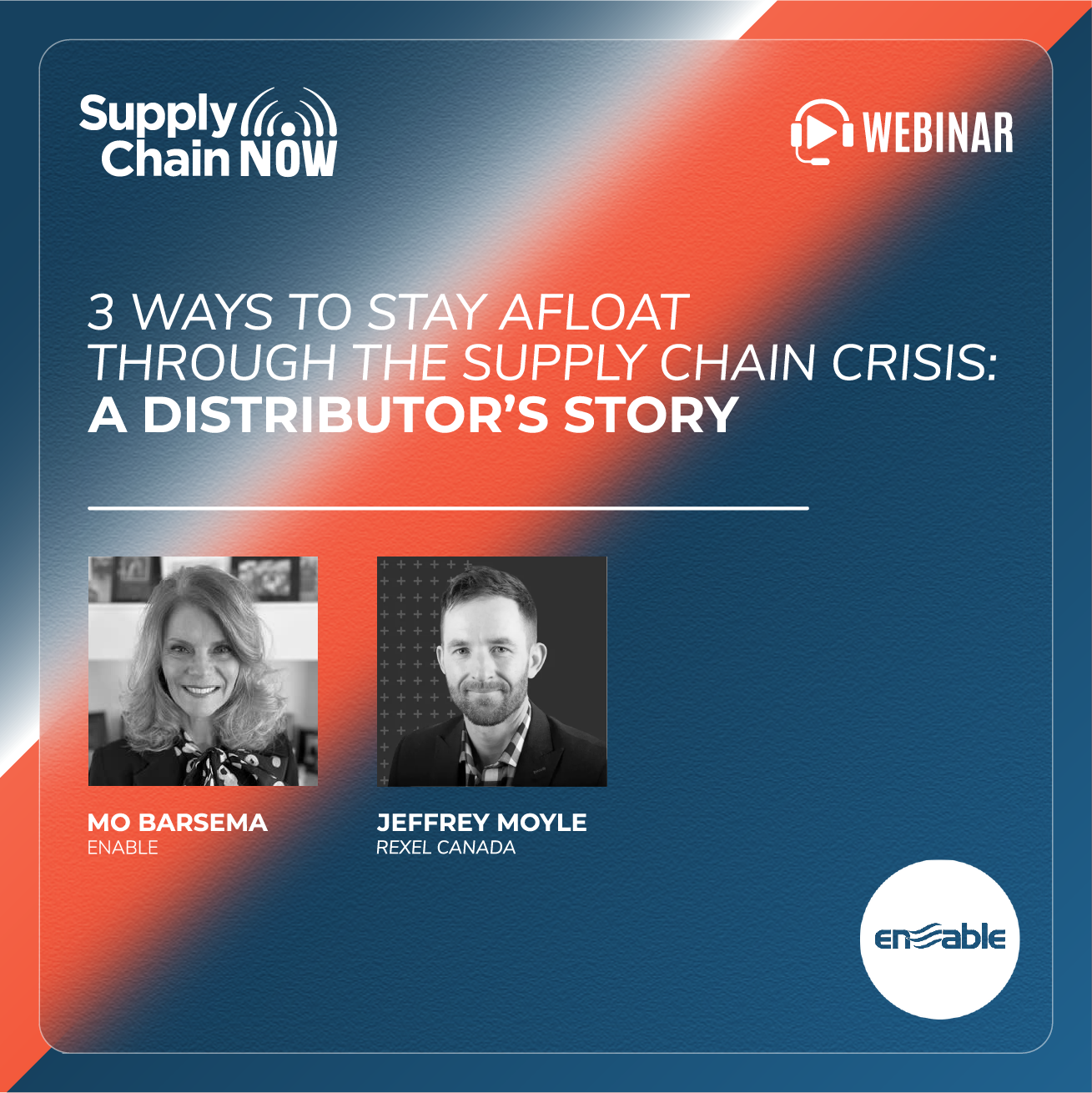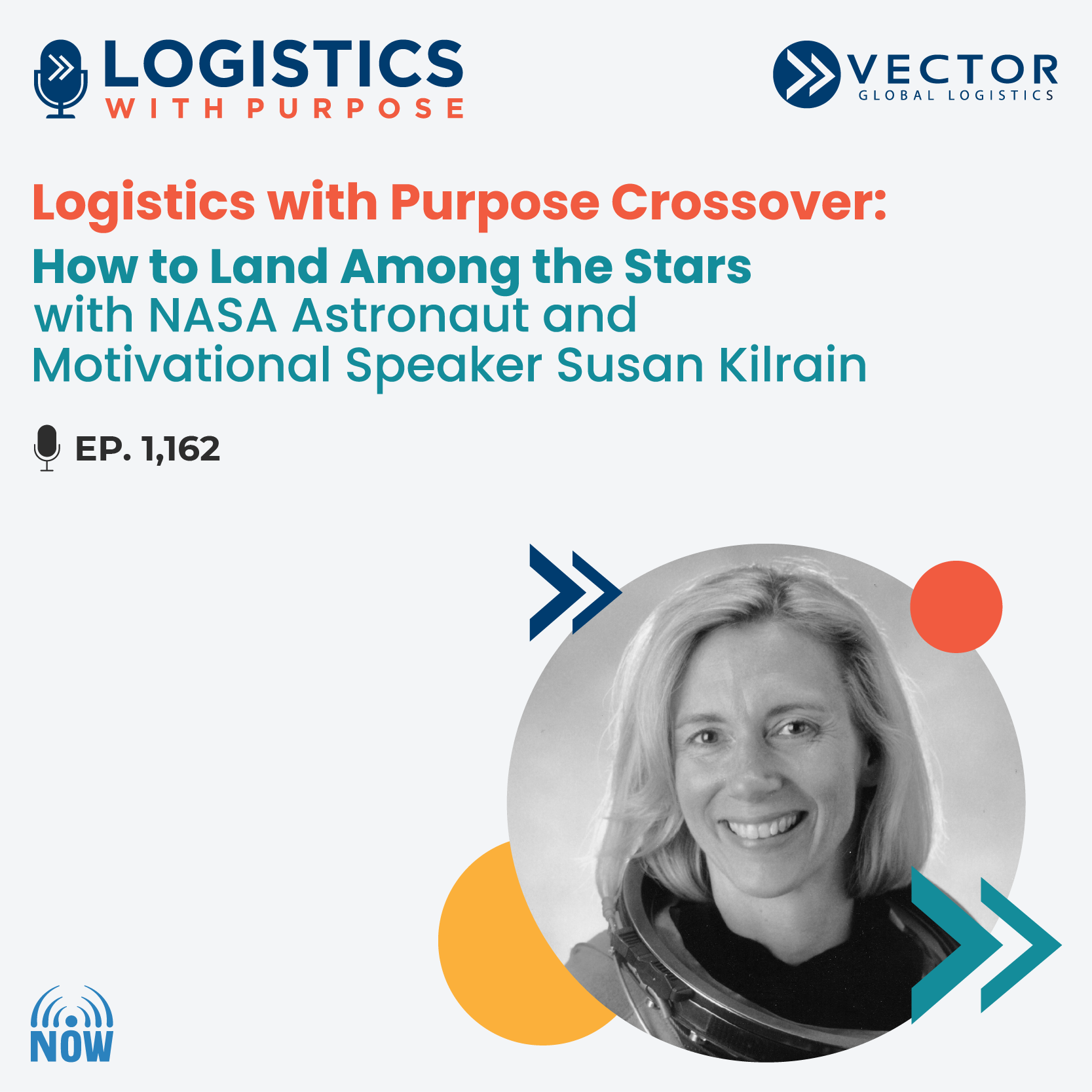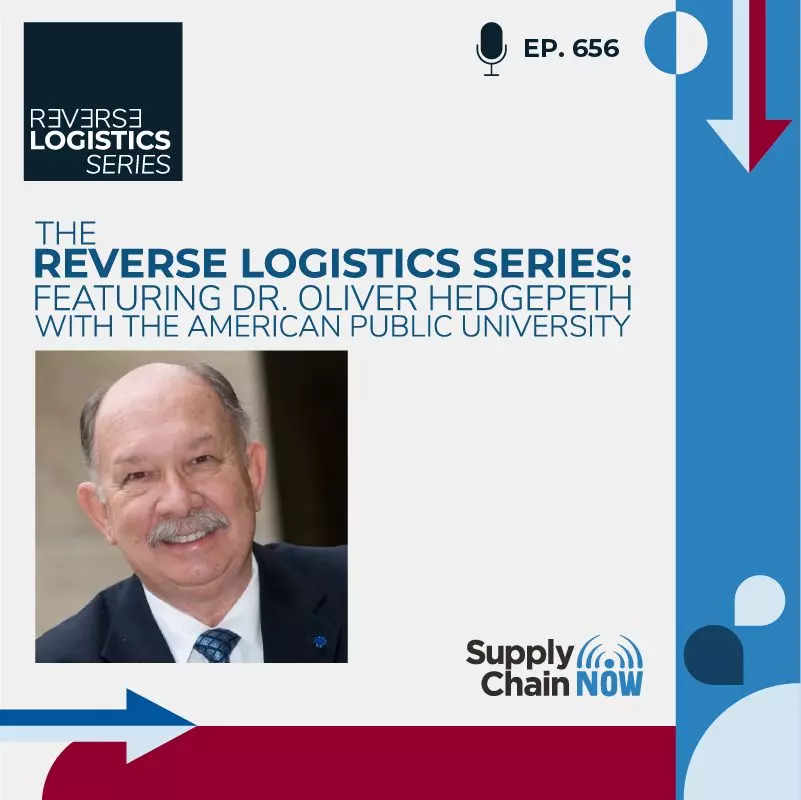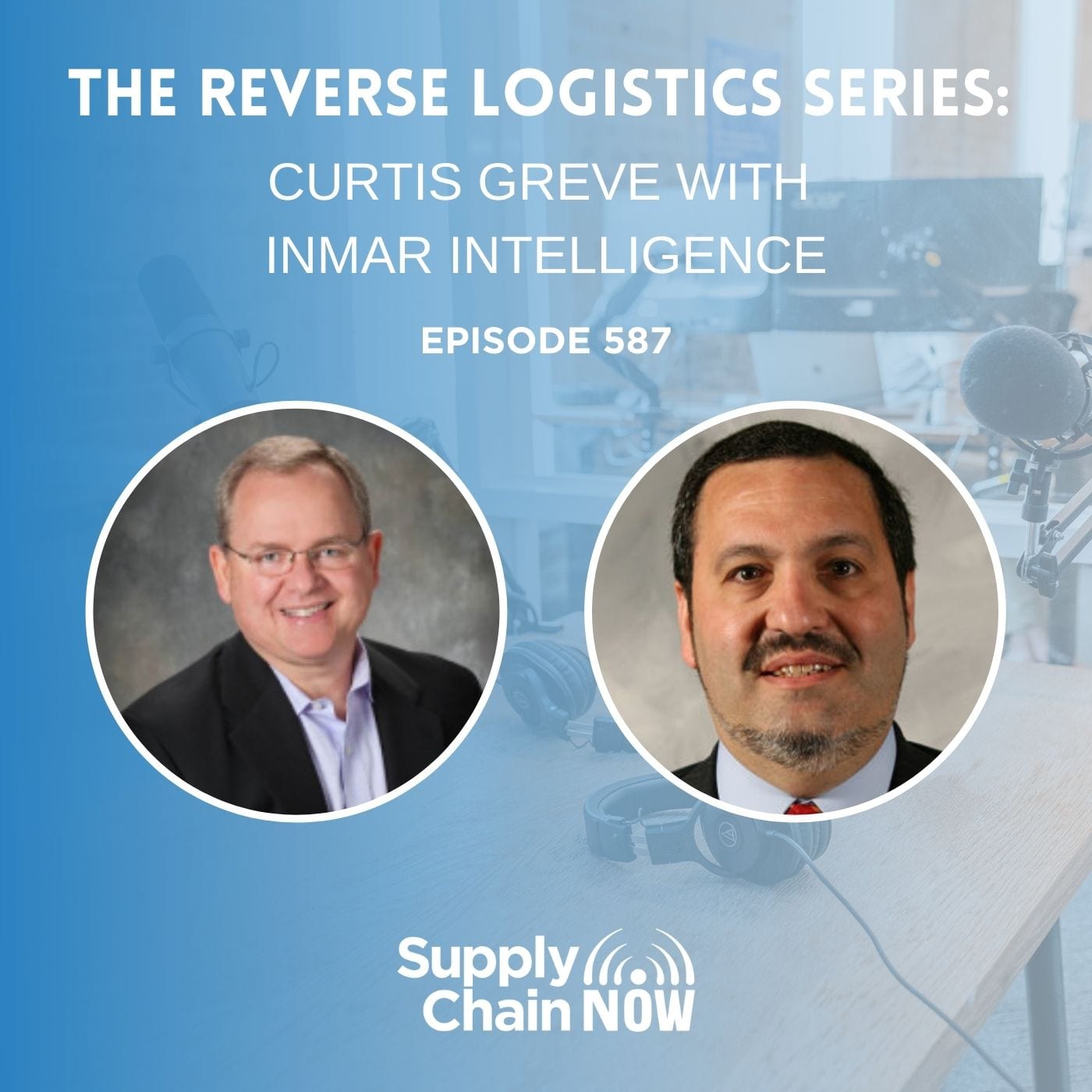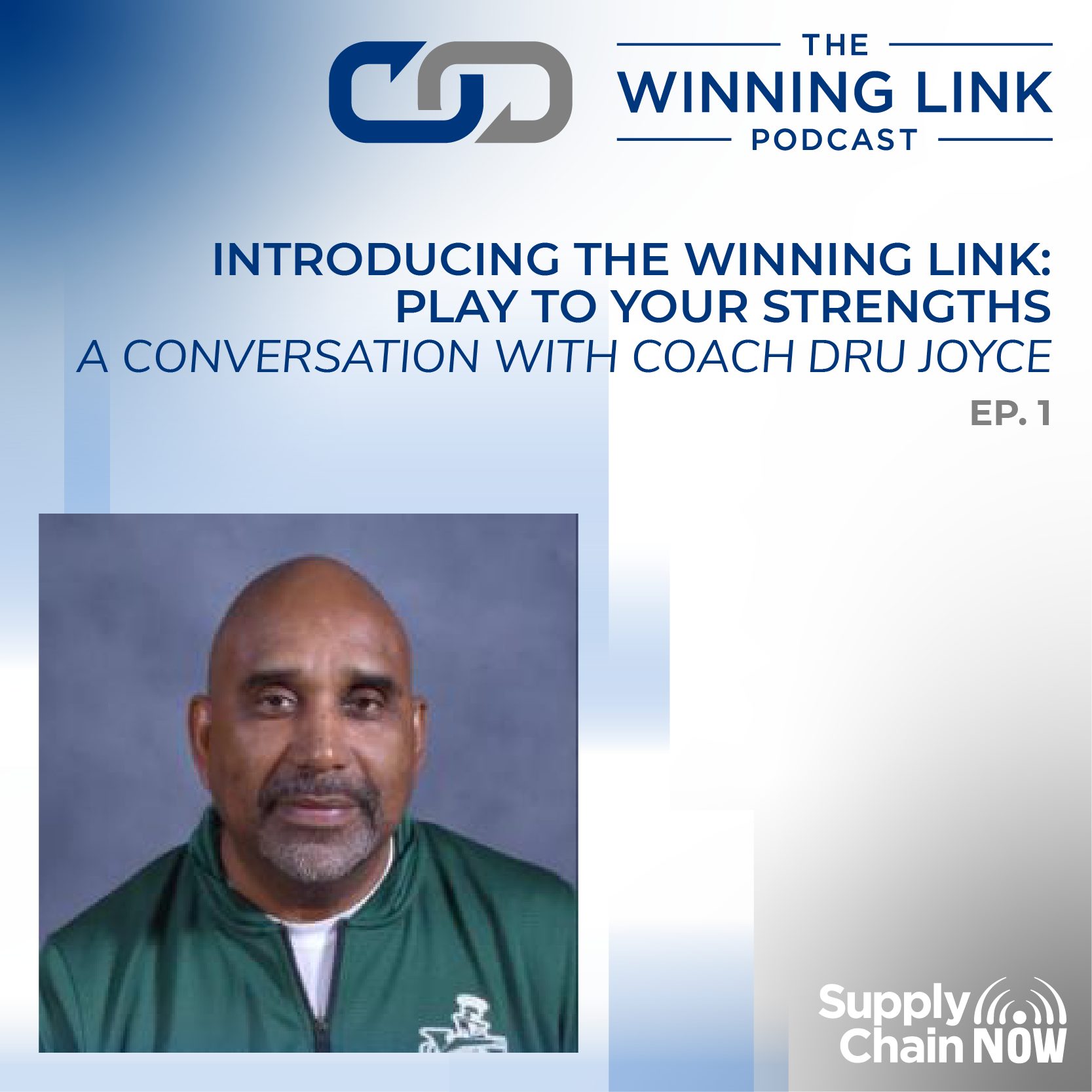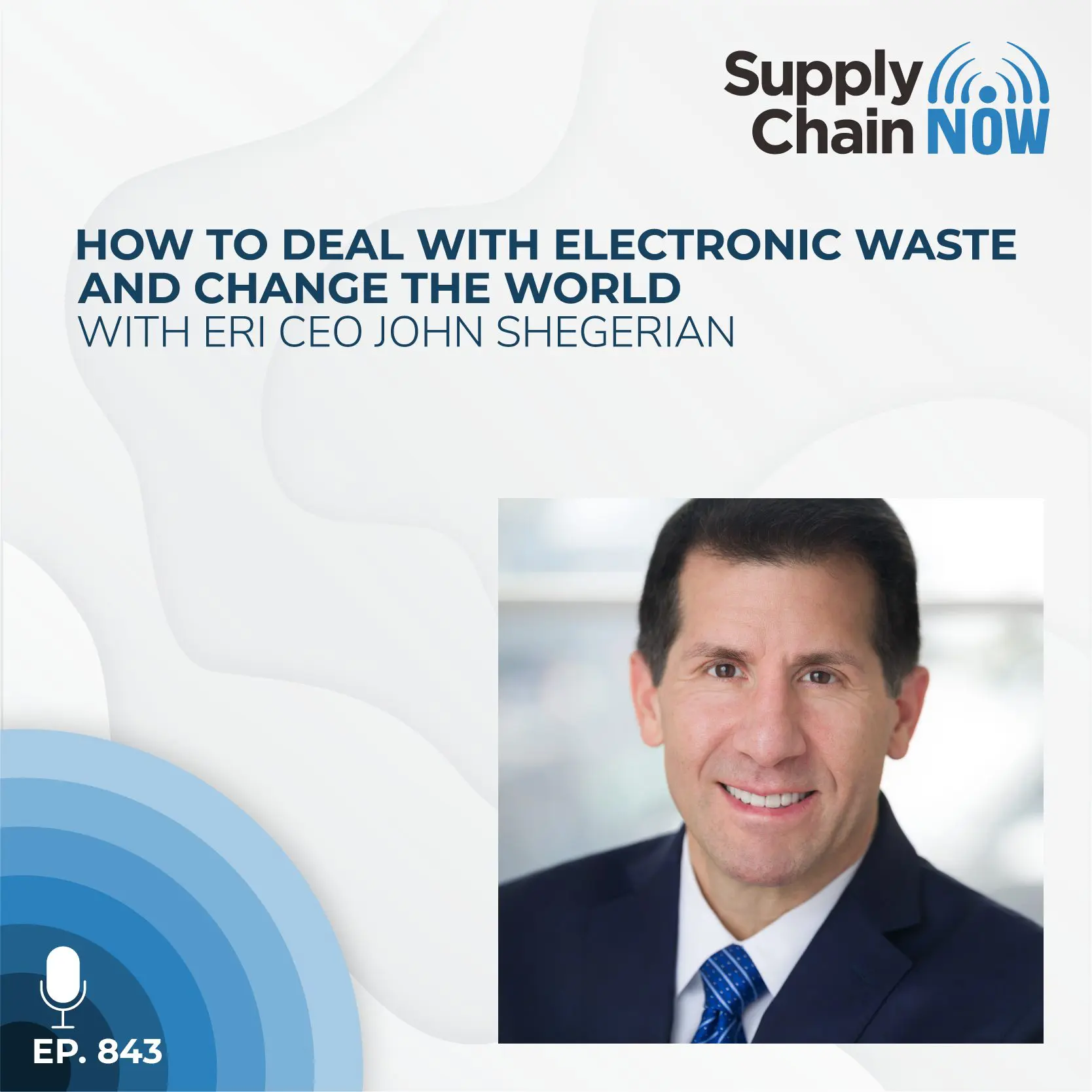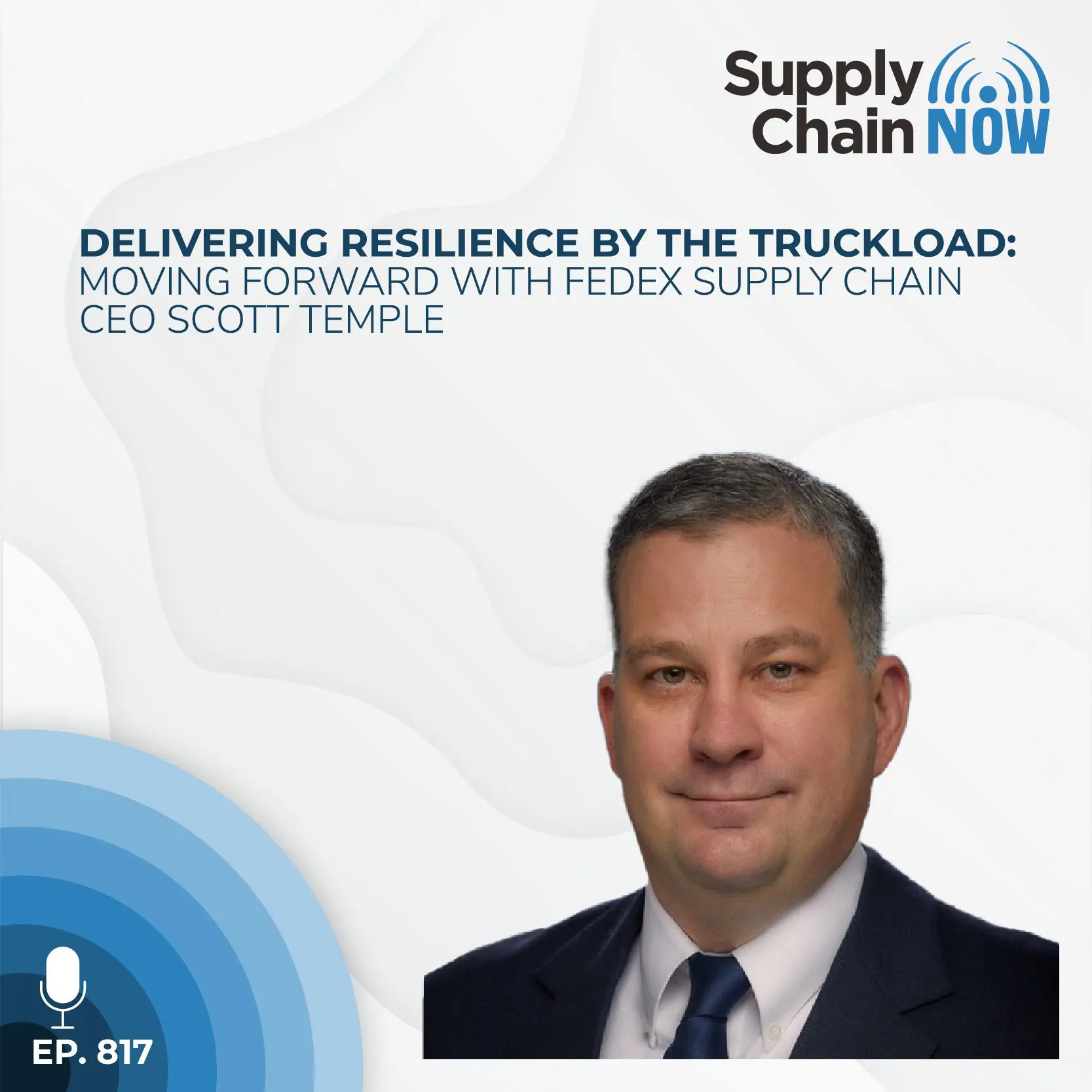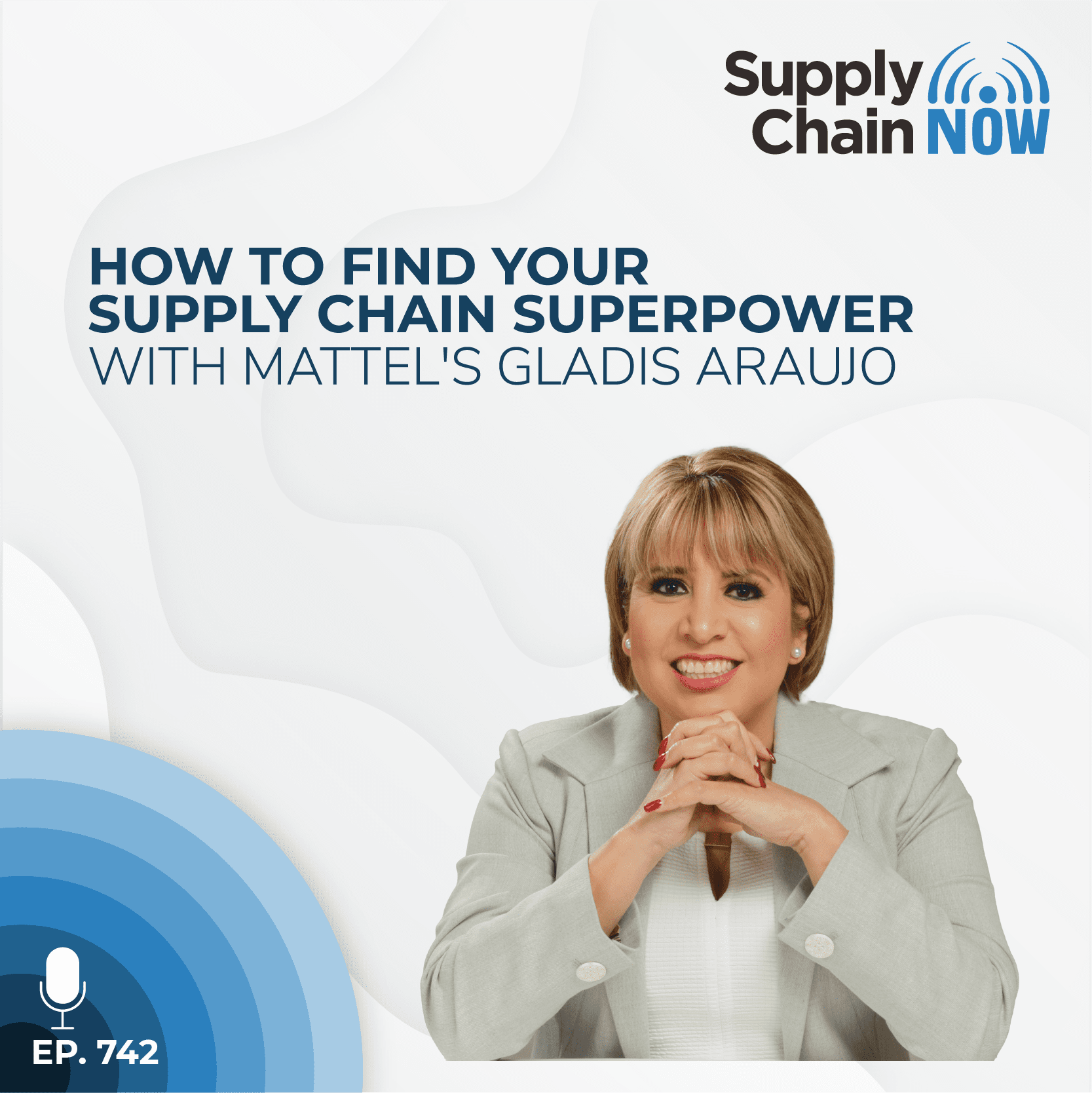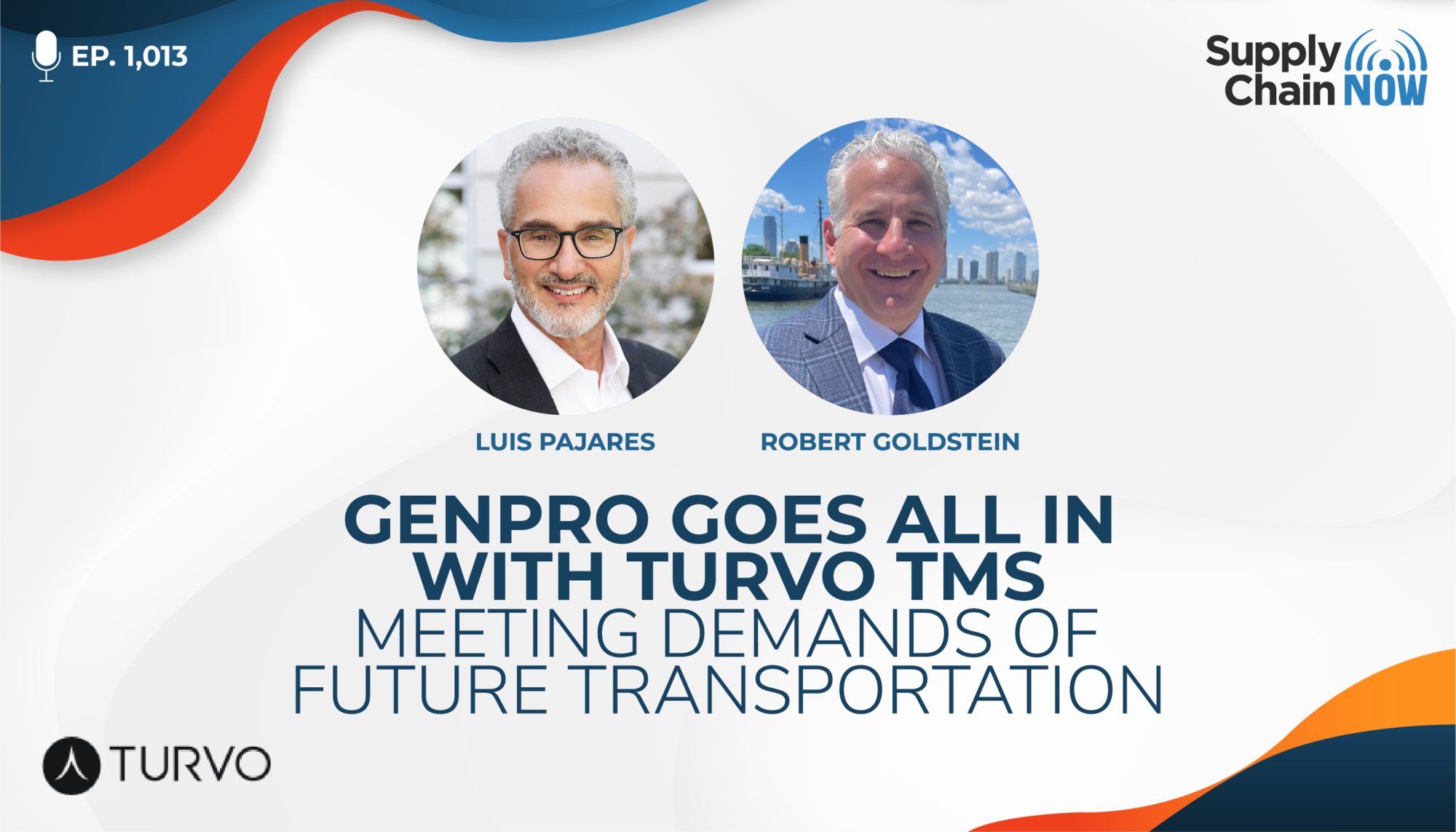
I am ecstatic that we partner with Genpro and that we're part of their fabulous growth. I mean, the Genpro company has been growing, and flourishing and his business, Rob's business, is seeing the benefit and we're very excited to be part of that.
-Luis Pajares
Episode Summary
Genpro CEO Robert Goldstein is able to easily manage his supply chain, thanks to careful planning and collaboration with Turvo to implement Turvo’s cloud-powered TMS solution. Join Scott and Greg as they hear the story of this powerful partnership from Robert and Turvo Chief Customer Officer Luis Pajares. Found out how they transformed the customer experience — and what’s on the horizon as the end-to-end platform moves closer to the edge.
Episode Transcript
Intro/Outro (00:03):
Welcome to Supply Chain Now, the voice of global supply chain. Supply Chain Now focuses on the best in the business for our worldwide audience, the people, the technologies, the best practices, and today’s critical issues, the challenges and opportunities. Stay tuned to hear from those making global business happen right here on Supply Chain Now.
Scott Luton (00:32):
Hey. Hey. Good morning, good afternoon, good evening. Scott Luton and Greg White with you here on Supply Chain Now. Welcome to today’s livestream. Gregory, how are we doing?
Greg White (00:40):
We’re doing quite well. Scott, how are you doing?
Scott Luton (00:42):
We’re doing wonderful. We enjoyed a good meal last night. Almost as good –
Greg White (00:46):
Yes. With a new member of the team, right?
Scott Luton (00:49):
Hey, life is good.
Greg White (00:50):
I think he’s you going to make it, don’t you, Scott? I mean, let’s just say it on the air.
Scott Luton (00:54):
You never know where we’re going to start these livestream conversations with Old Greg White. But almost as good as our meal last night, Greg, we’ve got a great conversation teed up here today where we’re going to be talking with a couple companies that are working together to, not only meet current transportation demands, but, more importantly, their work has them ready to meet the demands of Tomorrow Land. I think that’s a section of Disney World, if I’m not mistaken, right?
Greg White (01:18):
It could be. I never been to Disney in a long time.
Scott Luton (01:20):
Well, all of that aside –
Greg White (01:22):
Small world after all.
Scott Luton (01:23):
It is a small world. And supply chain, in many ways, is powering the demands of tomorrow. But your thoughts on today’s conversation?
Greg White (01:30):
Yeah. Well, I mean, I think with all the disruption that we talk about, we talk so much about global and local supply chain. I think that with all the disruption that we’ve seen, one of the things that we’ve talked about is collaboration between enterprises, and I think that’s really, really important. And we’re going to talk a lot about that here today.
Scott Luton (01:49):
Agreed. Folks, we’re going to dive into a couple intriguing stories, a case study. It’s going from all sorts of best practices and real innovative ideas of how you can be prepared to meet the demands of tomorrow. You never know what’s right around the corner, for sure. All right. So, Greg, we’ve got some folks chiming in across the Supply Chain Now ecosystem. Of course, we got to start with Clay “Diesel” Phillips. Diesel, because the engine’s always running. Clay, great to see you here today. Bello, via LinkedIn. Hey, y’all let us know where you’re tuned in from. We love to make those connections. But great to have you here. Chastity from Floyd, Virginia via LinkedIn. Ever been to Floyd, Virginia?
Greg White (02:28):
I don’t think. I don’t know where it is, so I’m not sure.
Scott Luton (02:32):
Chastity, I know you can’t share a map, but let us know what Floyd is known for. We’ll, see what else she responds there. Tony, great to see you via LinkedIn. Of course, Katherine’s with us here today, “Looking forward to a great livestream.” Big thanks to Katherine, Amanda, Clay, Chantel, you name it, all the whole production team that helps us make it happen. Samantha, from good old DFW. You’ve been to Dallas Fort Worth?
Greg White (02:55):
I have been there.
Scott Luton (02:55):
Yeah?
Greg White (02:56):
Yes.
Scott Luton (02:57):
Samantha, great to see you via LinkedIn. Looking forward to your perspective. Hey, look at this guy, Old James Malley from Brooklyn, Greg.
Greg White (03:04):
Yo.
Scott Luton (03:05):
James. I love –
Greg White (03:07):
[Inaudible].
Scott Luton (03:09):
Oh boy, James.
Greg White (03:10):
It’s all the Brooklyn I know. That’s it.
Scott Luton (03:11):
Is it? I’m not sure. I think there’s more there, Greg, but we’ll save that for a later webinar. James, great to see you via LinkedIn. Love the mission you’re on. Hey, Kelby is tuned in from Chicago via LinkedIn. Great to see you. Kimber from Denver, Colorado via LinkedIn. Love the picture there. Trip from Irvine, California – West Coast – via LinkedIn. You’ve been to Irvine, California, Greg?
Greg White (03:33):
I have actually. Irvine is home of one of my favorite In-N-Out Burgers.
Scott Luton (03:37):
Okay. I still haven’t had one of those yet. I’m missing out, huh?
Greg White (03:41):
It’s the best, most freshest fast food burger you can eat. It really is. You know the way people feel so strongly about Chick-fil-A, West of the Mississippi, it’s similar with In-N-Out Burger. Yeah.
Scott Luton (03:53):
All right. So, me and you are going to go out and head out and hang out with Trip, grab an In-N-Out Burger in Irvine. So, Trip, get ready. We’re coming your way soon. Madjid from LA via LinkedIn. Great to see you here today. And, of course, finally – I know we couldn’t hit everybody – Josh Goodey, one of our good old buddies from –
Greg White (04:10):
Smokey and Cold.
Scott Luton (04:11):
Yeah. How about that?
Greg White (04:12):
Yeah.
Scott Luton (04:12):
Well, the weather certainly is changing here in Metro Atlanta. It is so nice to have brisk mornings. And, Greg, how about this segue, we’re going to have quite a brisk and fun conversation here today, a very informative conversation with a couple business leaders. Are we ready to introduce our distinguished one-two punch featured guests here today?
Greg White (04:34):
Brisk is always better than brusque, so, yes, I think we are. Let’s do it.
Scott Luton (04:39):
With no further doubt – with no further ado, rather, I want to welcome in Rob Goldstein, CEO at Genpro, and Luis Pajares, Chief Customer Officer with Turvo. Hey. Hey. Luis, how are you doing?
Luis Pajares (04:52):
Hey. Good afternoon, Scott. Good afternoon, Greg. Good to see you guys again. Hello, Rob.
Greg White (04:57):
Welcome, Luis.
Robert Goldstein (04:58):
Hi, guys. How are you? Looking forward to the conversation.
Scott Luton (05:02):
We are too, Rob.
Luis Pajares (05:04):
Thanks for having me.
Scott Luton (05:05):
I tell you, we’ve really enjoyed these pre-show conversations with you both and many others. Rob, great to have you here. And, Luis, always we love repeat guests and we have such a great time on your last appearance. So, this is where we’re going to start, Greg, Luis, and Rob. I’m going to share a little history trivia with y’all here as we kind of start with a fun warm-up question before we get into serving the demands of tomorrow. So, get this, on October 20th, 1927 – so tomorrow, 95 years ago – the first Model A Ford was produced. So, with that as a backdrop, what is one of your favorite classic cars? And, hey, it doesn’t have to be that classic. So, Rob, let’s start with you.
Robert Goldstein (05:46):
All right. Scott, I thought we were going to start with how the Yankees did yesterday, how the Giants are doing, how the Jets are doing, some New York sports. You’re throwing off with a classic car that I [inaudible].
Greg White (05:58):
Take a few seconds and share that, please, Rob.
Robert Goldstein (06:01):
So, probably the Mercedes 300 SL Gullwing, series 1955 to 1960. Why would I pick that car and why do I think it’s cool and my favorite? I think just the look, the design, the liability of Mercedes product back in the 1950s. The engineering ahead of its time. The Gullwing, which has [inaudible] today the way things are open. So, probably the Mercedes Gullwing, plus, if I ever had the opportunity, I think I’d look really cool in it.
Scott Luton (06:32):
I agree. I agree. And by the way, big tip of the hat to the Yankees, and especially the Jets, who have filled in a surprisingly strong team on the latter. So, we’ll keep our finger on the pulse and have you back for our sports theme show here in a few weeks. How about that, Rob?
Robert Goldstein (06:47):
That’s fine, as long as it doesn’t highlights my fantasy football team this year.
Scott Luton (06:52):
So, Luis, that’s going to be tough to top. So, when you think of classic cars, what’s one of your favorites?
Luis Pajares (06:59):
Yeah. You know, the Gullwing is iconic. That’s a gorgeous car. You know, I actually remember where I was and how old I was when I fell in love with my first car. I was on my bicycle. I was on a Schwinn Stingray.
Greg White (07:13):
Oh, yeah. Also a classic.
Luis Pajares (07:15):
I was heading to the park to play some baseball. I was about 14 years old. And behind this fence was this really beat up Porsche 914. I don’t know if you’re familiar with that model.
Greg White (07:30):
Oh, yeah.
Luis Pajares (07:31):
But it was just sitting on the other side of the fence. It was four flat tires. I remember it just drew me in and I fell in love with that car. And a little short story, over time, I ended up finding a car like that one and got to buy it and drive it. And my kids learned to drive stick shift on that car.
Scott Luton (07:57):
Wow. I love that.
Greg White (07:59):
Do you still have it, Luis?
Luis Pajares (08:01):
Oh, regretfully.
Greg White (08:02):
I’m sorry. I’m sorry. I shouldn’t –
Luis Pajares (08:04):
Regretfully, no. That car has gone up in value. Oh, my goodness. I wish I did.
Greg White (08:09):
[Inaudible].
Scott Luton (08:09):
Well, hey, 2020, we know that story, looking back all things 2020. But, Greg, what about you? We’ve got two great, Porsche and Mercedes. Your favorite classic car?
Greg White (08:21):
Yeah. Well, the one that came immediately to mind – there are so many that I love, but the one that came immediately to mind, I kind of went sort of down the path that Rob did, very unique and innovative design and safety features. The Tucker 48, a company that most people don’t even know ever existed because they only produced cars for one year and they actually only produced 51 cars. But they invented the padded dash, pop out windshield, shatterproof glass. They had a roll bar in the cage. They had the engine in the back, and it was a boxer, six cylinder. Luis, so just a, a couple more cylinders than your 914, but same type of engine. And steering headlights, all of which are still – some of which, I should say, are still considered luxury items for cars today. And this car was built in 1947. So, unfortunate end to the company, kind of bad management. Not at all like the movie portrays, but is a great movie also, by the way. And that’s just the beginning of some of the innovations that they introduced. Some of which, you know, were decades and decades ahead of their time.
Scott Luton (09:25):
I love it. Okay. I’m glad we started there, classic cars, between Rob, Luis, and Greg. Rather than sharing mine, I’m going to share a couple comments here before we dive into the reason we’re all here. So, Chasity says, “Floyd, Virginia is nestled in the Blue Ridge Mountains, about 40 minutes from Virginia Tech. Best known for the Friday Night Jamboree at the local country store. It’s beautiful here,” she says. Chastity, thank you so much for painting that picture. Steve Lyons is back with us. Steve joined us not too long ago. He says, “Hey, Scott and Greg. Happy to see another successful company using Turvo.” Steve, great to see you and hope you’re doing well. And then, back to the Model A, as Henry mentioned, no pun intended, “Any color you want, as long as it’s black.” And that was Henry Ford back then. Okay. We’ll got one more. Katherine says that they’ve got a 1934 Ford and it is a beauty. How about that?
Greg White (10:17):
Wow. Cool.
Scott Luton (10:18):
Wow. All right. Folks, we got to get to work. So, I think we got some important level setting to start with before we kind of dive into some of the cool things they’re doing. So, I want to open up, Rob, with the Genpro story. Over 30 years of providing customized logistic solutions to really drive customer’s growth. So, Rob, tell us a little bit about you and the company.
Robert Goldstein (10:39):
Sure. That might take about the hour that we have, so cut me off if you have to. I have a lot to say. So, I started Genpro about 33 years ago. I went into the business learning from my family. My grandfather was a senior vice-president of a major retailer back in the day of perishables. And my dad went into brokering at some point when I was 17 years old. And my first experience was I was working at a gas station. My mom came to pick me up and said, “You need to come to your dad’s office, he had a heart attack.” So, I stopped my job at the gas station, left the car – Luis’s Porsche with a nozzle in it – and just ran with my mom to my dad’s office.
Robert Goldstein (11:25):
It was a one person office. He had just started about six months in business going into truck brokering at the time, and I got experienced that summer before I left college. So, through college, I followed the model. My dad got better, he was fine, had some other issues with his heart later on. But anyway, I learned the model and the opportunity at that time from my dad, who then went off to go asset based in owning a trucking company.
Rob Goldstein (11:51):
So, when I came out of college, I started Genpro after looking at the non-asset model, the service that needed to be provided, some of the antiquated practices, some of the opportunity. And we really started out, the commodity we focused on was perishables, produce. So, we shipped produce primarily out of the growing regions of California, and Washington, and Arizona, and Texas, and Florida, mostly to the Mid-Atlantic with relationships that I fostered from my grandfather growing up in the produce business.
Robert Goldstein (12:23):
So, I put the two together, I put the business model together for an opportunity that I thought there was, whether at the time graduating college, financial markets, or insurance services. I wanted to be a little more entrepreneurial and thought that what the Nonaka’s model promoted, there’s many facets of business which I like to engage in, from marketing, finance, and technology, to the operational and the sales components that I was able to put a service to that and a product together to go forward and to keep scale in mind and where we are today.
Rob Goldstein (12:54):
And I’ve evolved over that time. Today, we service retailers, wholesalers, food service, manufacturers, shippers. About 55 percent of what we do today is produce. The other is diversified commodities, mostly in food products. And we’re doing it at a national level from your on-demand spot pricing to your contracts, to your managed service solutions that are out there, of course, leveraging technology and processes that are put in place, and keeping service in mind as what we’re built on from the first load we’ve done.
Scott Luton (13:25):
Oh, man. What an incredible story. And I love the genesis of it on the frontend, how you and your family persevered. And that really gave the genesis and the roots of just how successful the company is today and so many different new aspects of what y’all do. So, thank you for sharing. It’s really important level setting. Luis, I want to also level set on the Turvo side. Of course, folks may remember some of our previous conversations this year, but in a nutshell, tell us what Turvo does.
Luis Pajares (13:50):
Yeah. So, we’re the first collaboration in visibility platform built specifically for the supply chain. So, Turvo brings everything, all your participants, all your systems, and all your processes in one place so you can see all your customers, all your carriers, all your shippers, all your systems, whether they’re TMSs or WMSs or ERPs, and then all your processes. So, everything from planning, executing, settling first mile to last mile all in one place. And that’s what Turvo does.
Scott Luton (14:28):
And, Greg, we’ve gotten a lot of feedback in previous conversations about Turvo. Quite a capable group, huh?
Greg White (14:34):
Yeah. I mean, transparency is one, and that visibility is one of the key things that we’ve been talking about ever since, you know, the seismic societal disruption of COVID-19. And that integrated connectivity, collaboration, whatever you want to call it, there’s a thousand cliches for it that that is so critical to companies. It always has been. But I think what companies recognized over the last couple years, almost three now, is that connective tissue is really, really important. That ability to know where you stand, whether things are going as planned or not, and either respond or react or change direction is so important for companies to know these days.
Scott Luton (15:16):
Yeah. Agreed. Agreed. Speaking of collaboration, Rob, I’m coming to you next, but really quick, Tony, great to have you here today. You’re asking about Q&A, hey, feel free to drop any observations or questions in the chat. We probably won’t be able to get to many, but it allows the Genpro and the Turvo teams to follow up maybe after today’s livestream. So, great to have you here and looking forward to your perspective.
Scott Luton (15:38):
Okay. So, now that we’ve kind of level set on Genpro and Turvo, Rob, I want to circle back with you. So, prior to your successful collaboration with Turvo, which we’re going to touch on later in today’s livestream, let’s go back to the previous state, what were some of the business challenges prior to Turvo within your organization?
Robert Goldstein (15:55):
Well, it’s been ongoing. I mean, over, you know, 33 years, you constantly evolve, reinvest, and you can’t stand still the scale of business, competition gets fierce, changing landscape creates opportunity but also creates some soul searching on where you see and how you validate a vision going forward to sustain 33 years and beyond. So, some of the obstacles that we were faced is, you know, we mentioned collaboration and visibility, and that’s a big one. There was some legacy products that were out there and some thought process that a lot of companies have implemented technology with web portals and giving information and access to information. And what we were looking for, we were a little behind with that at the time. And back in 2018, 2019, I was really trying to figure out where is the future state of non-asset brokering really going.
Robert Goldstein (16:50):
There are a lot of companies that have come in from venture capital and technology companies that have come in to go against brokering to create efficiencies and maybe doing it for less from a margin perspective. But where was it really going and what do I need to do to execute, continue to execute on freight with high levels of service, but get that automation and that business process flow for the way we see ourselves doing business? So, it was really about that. It was about a product that could be out there potentially. We’ve used a lot of product in the past, a lot of third party applications. We did go against the due diligence of building it on our own, but there were some good third party companies that are out there at the time from the TMS perspective.
Rob Goldstein (17:34):
But what we were missing is that modern easy interface on how to get our staff, our employees up to speed in an intuitive way, especially with the emerging workforce and younger generation coming in, and technology changing on what a system tells you to do. So, manage by exception, creating workflow, and you don’t have to think too much of how to attend to a transaction. But we were also looking for it to be able to scale and also be able to incorporate it into our sales strategies on what is the real value of technology to our customers, a customer being a shipper, a receiver, a retailer, food service, wholesaler, and our carrier customer, our carrier base. And how could we get efficient with that? So, it was more about a big efficiency driver, more modernizing the experience and creating solutions that can be embedded into our sales strategies.
Scott Luton (18:30):
I appreciate that. And we’re going to dive a little deeper in that in just a moment in terms of the partnership implementation and outcomes and whatnot. Luis, when you think about before Turvo started working with Genpro, what other drivers were there?
Luis Pajares (18:42):
Yeah. And, you know, Rob was talking about they’ve invested and had built and had quite a bit of technology, but I remember being in Rob’s office and I think to the left of his terminal, there was this little book that had all these three by five cards. And with all this technology that they had, Rob would take a three by five card out of one side of that book and write something on it and put it on the right side of the book. You know, so things were very manual, and our industry has just not advanced being able to automate and modernize and interconnect everything that’s happening from the beginning to the end of how something moves to the supply chain. And I think the thing that we helped Genpro the most on was being able to see from the beginning through the end the collaboration of all the technologies between all the systems and getting rid of that three by five card stack that every single logistics person has right on their desk.
Scott Luton (19:46):
You know, I think I’ve got one of those right here beside mine if I could share and pan my home studio. Greg, kidding aside, when you hear Rob talk about kind of previous state and some of the drivers, and Luis, what he shared there, what comes to your mind in terms of the needs for partnering and furthering the enterprise forward?
Greg White (20:05):
Well, I think the ubiquitousness of the problem, I mean like Luis said, virtually everybody in the transportation industry has a spreadsheet or a card catalog, or whatever, a notebook, whatever they’re using to manage that. And I think what’s key, I mean, to the recognition that Rob and his team had versus companies that still persist with these manual or spreadsheet systems – I hate to even call that technology – is that recognition that, hey, there’s something that we need to do here that could really streamline this for us, create the efficiencies that Rob has seen, and that sort of thing. And if you have a system, if you have a system, and it’s on paper or in a notebook or card catalogs, or even written on a whiteboard, or if it’s post-it notes, or if it’s a spreadsheet, chances are good there is some opportunity for automation out there. And you ought to be making the call because there aren’t tons of companies out there like Turvo.
Greg White (21:04):
What Turvo can do is replace what is a comfortable system. Rob, I’m sure your team and you were really comfortable with this system to the point – I mean, I’ve not been a party to these systems. I’ve built the old systems even on paper because I’m old – that you get really comfortable in these systems because you’ve got it in your head. And what you need to recognize is that anything that’s in your head, you can impart that knowledge to a technology. And then, the technology can actually conduct the process more effectively without emotion, without ever forgetting, and with consistency in terms of timeline. Because Rob is CEO, he’s got other stuff to do as well. Everybody does in their job. So, if it’s a full-time job to do that, it’s a great candidate for technology.
Scott Luton (21:55):
Agreed.
Rob Goldstein (21:55):
And, Greg, I just have one thing to add to that. Scott, sorry. So, Greg, that was it, I mean, you’re making it very antiquated, Luis. We’ve experienced six TMSs, including Turvo, over the 33 years. The blue card was how I started. It was a manual process. And I dabbled with some loads off the side of my desk because when I do that, it lets me be a user and I could test our systems and our workflow. So, I dabbled that. But the blue card is a source of information to then start the process into TMS.
Rob Goldstein (22:27):
But I will say this, that we started in 2018, 2019 looking to get efficient on how we can implement better technology, more scalable technology. And we went live with Turvo in 2021 of August. And our discussion started in May of 2020. Now, that vetting period, we were right in the middle of COVID, it was pretty hot. Nobody knew where things were going. It was May of 2020. We all got offsite in March a little prior.
Rob Goldstein (22:58):
So, good thing, bad thing. Bad thing it was COVID. Good thing is I had time because I was home and I worked the night and had more time to do things. So, I vetted out and tested Turvo extensively as a user, super user capabilities to be able to see where we were and what we were looking for. That it is a solution that we could go with to replace systems for the gain on what their vision was. And it is the only system that I have seen that I can move and navigate as quickly as I can and respond to customer service without relying on systems, whether spreadsheets or a card, outside of a system and with one way to do the process, not more ways to go get data or information in a quick, intuitive way. So, the customer service experience and translating that to the user being able to do that has been far better than any TMS I’ve used or have researched over my career.
Scott Luton (24:00):
All right. So, you’re reading my mind, Rob. You’re reading my mind. We’re going to move into how y’all started, what you’re addressing there. Luis, I’m going to get your complimentary thoughts as well. But right before you do, I want to welcome in – I want to say hello to a few folks – Daniel, great to see you via Poland via LinkedIn. Thanks for joining us. Raitis from Latvia via LinkedIn. Great to see you. Kevin L. Jackson, hey, thanks for joining us. The Kevin L. Jackson, host of –
Greg White (24:26):
He’s checking our cyber security while he watches, I’m sure.
Scott Luton (24:30):
That’s right. While he watches. And then, of course, Dr. Rhonda, great to have you here today, from Arizona. Okay. So, Rob started to kind of paint the picture, Luis, about a couple things there. Clearly he kicked the tires on a variety of different partners.
Greg White (24:46):
And used. I mean, I think that’s an important story, used so many systems. Because I think that’s a really common story out there, is, there are so many TMSs or visibility type solutions out there, but rare what Rob discussed there, that you can do so much with it. Sorry, Scott.
Scott Luton (25:05):
No.
Greg White (25:06):
This really struck me.
Scott Luton (25:06):
It’s an excellent point. And please stop me anytime, you’ll make excellent points. It keeps me from making irrelevant points, Greg, so keep it up. Luis, speak to the beginnings of what has clearly blossomed into a great partnership. Before we get into implementation and outcomes, speak to that beginning, Luis.
Luis Pajares (25:22):
Yeah. So, I remember, Rob, you say we started in May, I think I got to meet you in about the June timeframe, and we went through the contracting process. And one of the things that always set the Genpro team apart was how clear of a vision of how they wanted to marry their customer service with the way technology supported their customer service, customer experience. And when he says he kicked the systems, boy, I’ll tell you, he kicked the system a lot. We worked very closely together.
Luis Pajares (25:57):
And I’ll say this with a lot of appreciation, a lot of what we’ve built into Turvo has come from direct feedback that’s come from Genpro. They had a very clear vision of, you know, here’s the manual process by which things have been moving in the supply chain. These are the steps that can come out, bring about better efficiency, bring about a better customer experience. And we got to have these things in the product. And I credit Rob, and I got to call out Todd Jackson and Anna and Ari, people on Rob’s team that were so deep into the product. They were very visionary as to where they wanted to go.
Scott Luton (26:36):
So, Luis, I want to ask you and Rob about this at some point in this conversation because it came up in our pre-show, and I want you to go ahead and share it now because I think it really shares Rob’s commitment and his passion for serving his customers. So, Rob, let’s talk about this famous – infamous maybe – radish story. Share that, Luis.
Luis Pajares (26:57):
Well, I got to tell a story. So, we had gone live – and, Rob, I think it was the first time we had dinner together – and it was getting kind of late. I think I was drinking vodka martinis. I think you were drinking tequila, but I’m not quite sure. Anyways –
Rob Goldstein (27:14):
That would be Bourbon.
Luis Pajares (27:16):
Bourbon. So, we’re having dinner and all of a sudden Rob’s phone rings. And he looks at his phone, he says to me, “Excuse me. I got to take this.” I’m thinking, you know, it’s probably one of his kids, his wife calling. And he gets on the phone and he goes, ” Uh-huh. Uh-huh. The radishes. Okay. Hang on a second.” And on his phone, he just does this, and he goes, “Yeah, It will be there by 9:00 p.m. tonight. Okay. Thank you.” Hangs up.
Luis Pajares (27:43):
And there are two things that I took away. Here’s the CEO of a company, it was probably 8:00 at night, taking a call from a customer about a shipment of radishes that hadn’t shown up. And I thought, “Wow. This is a successful company where the CEO will take a call from a customer.” The second thing that struck me was, here is Rob using Turvo on his mobile phone, and without having to do anything, but in 15 seconds, be able to see that particular shipment without needing an order number, a shipment number, anything. Just knowing who it was and it was radishes. And then, when he hung up, he had this, like, Christmas morning smile, and he shows me his phone. He goes, “I run my entire supply chain on this.” And I was like, “Wow. This is awesome. This is radishes in real time.”
Scott Luton (28:37):
I love that story. I so much love that story. So, thank you for sharing. And, Rob, I tell you, your passion from the first time we spent some time together on one of the pre-shows is so evident. So, backing up – I’m always getting ahead of myself – so Luis is really speaking to one of the outcomes, which we’re going to get to more in just a second. But when it comes to implementation and the ease of flipping the switch, Rob, speak to that if you would.
Robert Goldstein (29:00):
Sure. The implementation, like any project, IT project, it’s a process. You have to stay ahead of it. You have to have a definition to what you’re doing and how you’re going to do it, and timelines, deliverables, so on and so forth. Turvo responded and understood our needs. And at the onset of our Turvo relationship – Luis already alluded that – we’ve made them better and we’ve improved the product to a lot more broker third party capabilities than what was first established at the onset. So, Turvo was extremely responsive, extremely open to collaborating together of why I am asking for the things that we’re asking for.
Rob Goldstein (29:42):
And because I’m a user and because you’re using some examples of answering a customer from customer service, that validates for me how well or how aligned technology needs to be on how we do business. So, I like to answer customer’s phone calls. You know, when I do it, it’s letting me test our systems and our responsiveness and our after hours capabilities. So, there’s a a little bit of a lab going on when I do that to be able to do it and take it back and make it more cohesive.
Rob Goldstein (30:11):
But to answer your specific question, Scott, the implementation went very well because Turvo was committed. There’s always going to be frustrations. There’s always going to be stumbling blocks. And no project is perfect by the onset and so smooth. But we went live in August of 2020, and within 60 days we rolled out piece by piece, division by division, we have about 110 employees, we have two locations. And we rolled out everybody within 60 days. The training – and I mentioned this earlier – the ease of use of the system is a very easy experience. What it also led us to do, and also on the implementation, is integrations. So, we had a very methodical way of doing integrations with EBI and financial systems and various applications that we use on analytics. We tackled each one at a time from an integration standpoint to be able to go live with the timing and deliverables that we had. We fell short in some areas, but Turvo kept on it to commit to what we needed to do and we adjusted. So, it was a very good experience, and it was a good experience because the product worked. There weren’t many variables that we had to consider to adapt to.
Rob Goldstein (31:23):
The other thing that was an important part on the speed to market and speed of product being implemented was what we wanted to do to the marketplace. We wanted to come up with a product, and this was the soul searching that went to be done, whether I was a proprietary do an overlay on our existing technology or go and see if there’s another third party product to validate that we could engage with our customer and our carriers in one of the most important functions that Turvo does, and that is the tenant experience and the collaboration. So, Turvo has a concept of what they call a tenant that gets on the system in a very quick way for them to trade and get visibility along with you from a service standpoint. There is workflow that could go into that. There are projects. So, we’ve become more consultative in the process with our customers. And it allows us to engage in different ways than what we were able to do before. So, we have customers as tenants, we have carries on tenants, meaning we’re on one unified solution with our ancillary third party applications around that fully integrated. So, the implementation was successful in a fairly quick amount of time to be able to replace a lot of product that we had in dependency and go with Turvo probably more on their TMS functionality than most of their clients at the time. So, the implementation went very well. It leads to opportunity today.
Rob Goldstein (00:32:47):
And the last piece I’ll say is the combination of what Turvo offered from TMS capabilities, along with third party integrations, and the way we set business flow of the accountability of our workforce – and we have a very skilled, competent workforce and great employees – it allowed us to execute and not lose the focus on freight while doing something very key. Have a tech enabled solution to go up against the marketplace with a lot of technology brokers, or digital brokers, venture capital back brokers coming into the space saying they had something unique. Today, we have the technology along with what they’re offering and we also have high levels of service and execution at the same time. So, that was my experience.
Scott Luton (33:31):
I love it. Now, we’re going to dissect some of this a little bit, Rob. And, Greg and Luis, I’m going to circle back to y’all in just a second. I want to recognize a few folks. Julio is a supply chain intern in the oil field services industry. Thanks for being here today, Julio, and I hope you pick up a lot of goodness from Rob and Luis. And, Russell, yes. We all love this radish story that Luis shared a moment ago, so keep it coming. Okay.
Scott Luton (33:55):
So, I want to go to circle back to Luis first. And then, Greg, I’m going to get your take. So, we heard a lot of things there from Rob, commitment because with anything worth doing, there’s going to be bumps in the road, the commitment to make it happen. Really, ease of implementation. I heard 60 days or less in terms of getting folks using. We’ve heard some training support in previous conversations. And then, we heard some of the enablement of certainly heightened service to Rob’s customers. But, Luis, what else would you add as it relates to implementation and flipping the switch? And I’m coming to you next, Greg.
Luis Pajares (34:27):
Yeah. And, again, I’m going to sound like I’m being a little patronizing here, but I’m not. I think if you’re listening to this, there was a commitment by Rob that he was going to transform his company. Because change management in our industry is the death nail of every good project. And I think the implementation, again, went really well because there was a little bit of the Hernán Cortés philosophy, we’re going to burn the boats, we’re going to transform, we are moving. And, again, I mentioned his leadership team, they were fully committed. So, I think you have to really include that as part of the discussion because all good plans go out the window if change management is going to kill it.
Scott Luton (35:10):
Yeah. Well said.
Luis Pajares (35:12):
And, again, I’m going to double click on another area, the Genpro team knew exactly what they wanted to transform. And they knew that that transformation, again, had to align with their customer experience philosophy. And because they knew where they wanted to go, they were very clear on the things that we had to partner with them to make sure that we were going to support from a technology standpoint. So, again, a team that was very committed to the transformation and a team that had a clear vision of what they wanted to accomplish really made that partnership very successful.
Scott Luton (35:53):
I love that, Luis. Greg, I bet that resonates with you.
Greg White (35:56):
Yeah. I think what’s really important to recognize here is how exceptional both of these companies are. One, the level of involvement and engagement and support and goal setting, all the way to the top, which is critical for a technological implementation. And the recognition, too, of Rob and his team that they’re competing against big guns with big war chests, and able to do something with a technology that costs a fraction of what I’m sure the flex ports and all these other tech enabled brokerages, which are brokerages with technology. Somebody paid tech prices for brokerage companies, Masayoshi Son.
Greg White (36:33):
But, also, I think what’s important to recognize here is how exceptional it is for a technology company -and, Rob, this might be because of the fact that you’ve had six other TMSs, which makes me hurt to even think about – probably is something you recognize may not even appreciate as much yourself. Maybe you do, I don’t know. But a company that in 60 days can enable an entirely completely new business model into their technology, that is incredibly exceptional. And that goes to, not just the power of the company, not just the commitment from a customer service standpoint, but it goes to the architecture of the technology to enable that kind of change. And that level of architecture in a company that enables that kind of flexibility in a technological program, that is very, very rare.
Greg White (37:25):
So, you have a really exceptional situation here where you’ve got a technology that can adapt really, really quickly. A company that is exceptionally engaged, as Luis said, with clear eyes on the goals. And I think whether you are a tech company or whether you are a brokerage or asset based carrier, anyone, frankly, in any company that’s thinking about developing technology, this is a fantastic model for how to do it right and fast, unbelievably fast, really.
Luis Pajares (37:54):
Greg, thank you for that. And as Turvo promotes, you know, we were able to do the project because we had committed people, great people to respond to where we want to go as a company, and the opportunity and the threats that are presented in the marketplace against that. So, we stayed nimble, agnostic with technology, very flexible to be able to move forward. So, it definitely helped to align that way.
Scott Luton (38:17):
So, good stuff, Rob, Greg, and Luis. So, we may skip over the forward looking question as it relates in the big greater business sense because I want to make sure we give you, Rob, a chance if there’s any other outcomes and benefits that we haven’t been able to mention. Now, we’ve spoken to that some. Rob, anything else when it comes to outcomes and benefits from this partnership that you’d like to mention?
Robert Goldstein (38:38):
I think the big benefit is that, you know, when we look at our workflow, we treat ourselves almost as if we were the asset provider. There’s a little more control into transaction, a little more quick responsive because you’re controlling that asset and you know what’s happening. As a broker, you’re in the middle, you’re counting on many parties of communication to try to get and execute communication properly. So, Turvo has definitely pulled that together, a big efficiency driver when it comes to communication laying in the system at a shipment level. But it also allowed us to promote workflow with our business development, to our account management, to our carrier execution teams, to our track and traces teams to be able to segment the system out to manage by exception and manage with dashboards. So, as I said at the beginning, it’s very intuitive to where we want to go. So, in the future, it’s allowing that speed to market to happen and we’re having fun with it to go forward.
Scott Luton (39:31):
I love that. Now, Luis, I’m going to give you and Greg to weigh in, but where are the radishes now, Rob? Just kidding. Just kidding.
Greg White (39:39)
In his belly now I’m sure.
Scott Luton (39:42):
I know you know. I know you know.
Rob Goldstein (39:44):
On my salad last night.
Scott Luton (39:46):
All right. And quick sidebar, so, Tony, you’re asking some great questions. It looks like members of Luis’s team and the Turvo team are in there in the chat having a sidebar conversation. Hey, y’all keep that coming. We want this to be a very informational conversation. We really appreciate Luis and Rob’s time as we walk through this partnership here. Luis, before we find out where the partnership’s headed next, anything you’d like to comment on some of the outcomes that you and the Turvo team are most proud of related to this partnership?
Luis Pajares (40:13):
Yeah. I think we’ve used the word TMS here quite a bit, and Rob is certainly using Turvo as a TMS, but he’s going much further and he’s able to offer services that you cannot offer if you simply have a TMS. You know, he’s working with his customers to take in customer orders, whether they come in through EDI or they enter those orders in the customer tenant. And he’s optimizing those orders. He’s planning executing freight. He’s also scheduling appointments. So, he’s really offering the entirety of the services that differentiates Genpro from any other logistics service provider who has a TMS and is only planning, executing, and settling freight. So, I am ecstatic that we partner with Genpro and we’re part of their fabulous growth. I mean, the Genpro company has been growing, flourishing. And his business, Rob’s business, is seeing the benefit and we’re very excited to be part of that.
Scott Luton (41:17):
Love that. Greg, I’m going to get you to weigh in on this next question for the sake of time, I got about 12:45, and we’ve got some resources that we want to share from the Turvo team. Rob, let’s talk about where this partnership is headed next. What does Genpro and Turvo have up their sleeve?
Robert Goldstein (41:33):
Well, we’re going to continue to thrust forward in an aggressive way from business development and our capacity strategies against that in a very volatile market, you know, very cyclical market of what we’ve experienced to what we’re kind of calling a new normal on how that looks. So, our partnership together is to keep the project management, the identification of what value there is that can be further gained from an efficiency standpoint. And, also, working with our customers on their needs on how we can implement the solutions that we’ve designed and provide today to their supply chain on what they can do while they’re not getting it themselves. So, it’s going to be from here an ongoing evolution of our opportunities in the marketplace in coordination with a business case to Turvo to see how they can help assist that.
Scott Luton (42:23):
Love that. Luis, what would you add to Rob’s answer there?
Luis Pajares (42:27):
Well, obviously, we continue to invest millions of dollars in enhancing the platform and bringing about more features and capabilities. But the radish story where the customer called Rob and he was able to do it really quick, I mean, the idea is to be able to help the customers get onto their own mobile phone and be able to pull up their version of the Genpro-Turvo experience and know that the radish is where they are. So, it’s moving the technology and that experience all the way to that customer and your customer’s customer. And we’re looking forward to working with the Genpro team and being part of that expansion.
Scott Luton (43:10):
I love that, Luis. All right. So, Greg, whether you’re speaking to what you heard there of what’s next for the partnership or where the partnership is currently, what’d you hear there? What’s one of your favorite parts?
Greg White (43:21):
Well, the favorite part for me is if I were in Rob’s seat, I would feel a lot better about having a bourbon with dinner if I knew that my customers could look into the system themselves rather than call me and have me look into it. So, I think that is a brilliant extension of the product. Also, I’m struck by the dynamic that we have so much trust with a customer here that they’re doing what every technology company should dream of, and every company that I advise, I tell you’re looking for, which is, “Hey, you helped us with this, can you help us with that?” Because that shows the tremendous amount of value that you’ve created for a company and the trust that you’ve generated within that company to be able to do that. And it is the responsiveness to your customers is the only way to extend your product. You cannot build a product in a vacuum thinking you’re smarter than the market, which in some ways you might be. But in the end, it’s really not even the AI or the ML or the blockchain or whatever technology you’re using that makes a product exceptional. It’s not how we contemplate how it’s going to hit the balance sheet or the P&L statement or the cash flow statement in the ivory tower. It’s how it gets used on the desktop, or in this case, the mobile device that, really, it is the litmus test for a successful technology.
Scott Luton (44:40):
I love that. And Kevin shared something along those lines. The key, Kevin says, is being able to implement the right business process with technology process first, and then the tech and the right tech.
Greg White (44:51):
Yeah. You won’t automate terrible processes. That’s a short way of saying that.
Scott Luton (44:55):
Otherwise, you’re just making bad process happening faster or something, whatever.
Greg White (44:59):
Yeah. You’re expediting your race to the bottom.
Scott Luton (45:01):
There you go.
Rob Goldstein (45:03):
And, Scott, to Kevin’s point, when we engaged with Turvo, we were very clear on our business process, which made it easier because the way the architecture and the system was designed, aligned to exactly that, which is why I made the decision at the time not to go proprietary or build something myself or go through further due diligence on other systems. That there was a complete alignment to business process first on how the technology could implement on top of that.
Scott Luton (45:31):
I love that. And, also, we couldn’t dive in with maybe both feet other than the radish story, but, Rob, you and your company are doing big things, especially in the produce industry, and there’s so much more to that story, so we’ll have to have you back soon and dive in deeper there.
Scott Luton (45:45):
All right. So, before we move into some of the resources, Luis, you and the Turvo team brought, I’ve got one forward looking question for Rob. So, Rob, as we determined pre-show, the Yankees are playing the Astros, and you don’t have to answer this question, but if you had to make a bold prediction, what’s your call for the ALCS? Who’s going to win?
Robert Goldstein (46:05):
Come on. I’m biased on that one. What do you think the answer is going to be?
Greg White (46:09):
Okay. Let’s make it easier, Rob. How many home runs does Aaron Judge have during the ALCS
Scott Luton (46:16):
I got about 27.
Robert Goldstein (46:17):
The Yankees are hot right now. They’re on fire. I don’t see them stopping.
Scott Luton (46:22):
Man, they’re a great team. And they beat a great Guardians team. So, Rob, good luck to you and Yankee Nation for sure. Okay. So, let’s do this. I want to share a couple different resources, namely this great case study that I think goes deeper into the story here today. And it talks about Genpro goes all in with Turvo’s cloud TMS. So, Luis, when you think of this white paper that’s going to offer a lot more details into the conversation, you know, we had about an hour, we had limiting time here today, but why should folks check out this white paper?
Luis Pajares (46:54):
Well, they can see the blueprint for how a company transforms in a successful way. You can find the whitepaper on the Turvo website, www.turvo.com/genpro, and you’ll find the whitepaper there. And, again, it’s a blueprint and sort of a list of objectives that if you’ve got clarity on the objectives that you want to hit, you’re going to increase your probability of being successful in transforming.
Scott Luton (47:28):
And we’re going to make it even easier, Luis. We got that in the comments. I think we’ve got it on the show notes. Y’all can check out, you’re one click away from diving in deeper to what’s a really neat partnership between Rob and the Genpro team and Luis and Turvo. So, it sounds like a lot more great things to come. And Rob and Luis want to invite folks to check out the Turvo and the Genpro Company pages on LinkedIn. That’s a great source of information and content.
Scott Luton (47:58):
And then, finally, one last question for you both before we wrap up here, and we may just have time to get Greg’s key final takeaway. But before we get there, Rob, really, I love your story and I wish we had more time to dive in, especially in the genesis. I can only imagine the chapters of the book you’ll write soon about, you know, that phone call you got. But folks, in the meantime, how can they connect with your team, Rob and learn more about Genpro?
Robert Goldstein (48:23):
Well, obviously our website, genproinc.com, LinkedIn, my email. If you guys want to post it, that’s fine, robg@genproinc.com. So, our website has an info at genproinc.com as well, but LinkedIn might be the best way also.
Scott Luton (48:40):
Awesome. Really appreciate your time here today. Don’t go any –
Robert Goldstein (48:43):
Or we want technology to create that efficiency, I still like to talk to people, so calling me directly, and our number is on our website. That’s fine too.
Scott Luton (48:52):
Love it. And I promise you it’s going to be a lively and informative conversation with Rob. We really enjoyed his time here with us. All right. So, Luis, man, again, as I shared with y’all pre-show, I loved the synergy and kind of the been there and done that partnership and the real relationship between you and Rob and your respective organizations. How can folks connect with you and the Turvo team?
Luis Pajares (49:17):
Sure. So, again, come visit us at www.turvo.com. You can find me on LinkedIn. You can also check us out at TIA Technovation next week, October 26th through the 28th in Phoenix. And at FreightWaves, November 1st and 2nd in Chattanooga. The Turvo team will be there and we’d love to meet new acquaintances.
Scott Luton (49:41):
Wonderful. Man, press the flesh, have real conversations with Luis and the team. There’s great event there. Okay. Before we we sign off here with Rob and Luis and this great story, Gregory, if folks forget everything else they heard here from, the one and only, Rob and Luis and their teams, what’s one thing that they got to keep front and center?
Greg White (50:02):
Model every single technology implementation that you do off of this story. I’m serious. Download that case study, learn everything you can. Sorry, Rob – call Rob, talk to him. Call Luis and the team in Turvo and talk to them about that because this is a great model of technology implementation. And the speed, the adaptability, and the return on investment, incredible in pace, in level, everything. This is a really, really rare instance. I think it will become more common, but Turvo is clearly ahead of the game here. I’m sure Rob’s last six implementations did not go as smoothly or as quickly as this. And I know lots of companies with all kinds of systems who have waited years for results, I’ve worked with a company called Henry Shine in New York, and they used to say they were in the seventh year of their five year implementation of SAP.
Greg White (50:59):
I mean, the game has really changed and I think you have to recognize it. And it’s not as intimidating and it’s not as disruptive as it used to be to implement technology. But you have to have a goal as an organization. You have to have clear cut goals. And also the ability to contribute. You have to have trust with your chosen provider, and you have to have a provider who can both provide what you think you need out of the gate, what you discover you actually need during the implementation, and adapt their system – this is so impressive – adapt their system to what you need that they don’t have rapidly.
Scott Luton (51:33):
Well said. Well said. Be like Rob, for sure. And then, on that note, big thanks to Rob Goldstein, CEO at Genpro for joining us here today. Rob, thank you very much.
Robert Goldstein (51:44):
Yeah. Thank you. Thank you guys. Appreciate the opportunity.
Scott Luton (51:47):
And Luis Pajares, Chief Customer Officer with Turvo, thank you very much.
Luis Pajares (51:51):
Thank you guys. Thank you, Rob, very much for your partnership.
Rob Goldstein (51:54):
You got it.
Scott Luton (51:54):
And to all of our listeners out there, thank you for tuning in. Thanks to all the comments. We couldn’t get to – well, hopefully, that’ll help power some post-livestream conversations. Big thanks to the production team. Greg, always a pleasure to knock out these conversations with you. I appreciate your comments here today. But, folks, what a case study in leadership and changing the game for your consumers, for your organization. And doing so with a trusted committed partners. So, y’all, there’s lots to learn here. Be like Rob and work with folks like Luis. But whatever you do, it’s about deeds, not words. Take action. So, on that note, on behalf of our entire team here at Supply Chain now, Scott Luton challenging you to do good, to give forward, and to be the change. We’ll see you next time right back here at Supply Chain Now. Thanks everybody.
Intro/Outro (52:39):
Thanks for being a part of our Supply Chain Now community. Check out all of our programming at supplychainnow.com, and make sure you subscribe to Supply Chain now anywhere you listen to podcasts. And follow us on Facebook, LinkedIn, Twitter, and Instagram. See you next time on Supply Chain Now.
Featured Guests

Luis Pajares is the Chief Customer Officer at Turvo. He ensures a deep understanding of each customer’s business to best serve them with appropriate solutions that fuel success. Luis previously served as the Chief Revenue Officer at Turvo, where he led the growing sales and marketing teams. Luis Pajares has a proven track record of success with over 30 years in software and Saas solutions in both large publicly traded and pre-IPO companies. He served as Group Vice President for Oracle Communications and was a senior member of the management team responsible for strategy and execution. Prior to Oracle, Luis led the transition of Tekelec, a telecommunications company, from a publicly-traded company into private equity, later culminated by the Oracle acquisition. Additionally, Luis led worldwide sales for Airvana, a provider of mobile IP solutions, where he helped take the company public in 2008. From 1999 to 2003, Luis was Sr. Vice President at Inet Technology, a provider of business and operations management solutions, where he managed the Company’s sales, consulting, customer service, product line management and marketing organizations. Luis helped the company grow sales to over 500+ customers on six continents. Prior to Inet, Luis held a general manager role overseeing product development, finance, and customer functions at Alcatel where he responsible for Alcatel’s business in Japan, Taiwan, Korea, and Canada. He came to Alcatel as part of the DSC acquisition where he was Vice President of Mobile Networks. Luis began his career in communications at Texas Instruments where he was responsible for negotiating defense contracts. He then moved to NEC America where he held various sales and management positions responsible for selling to enterprise, education, and service provider customers. Luis holds a B.A. in Economics from the University of Florida and an MBA from the University of Dallas. Luis lives in Dallas, Texas. Connect with Luis on LinkedIn.
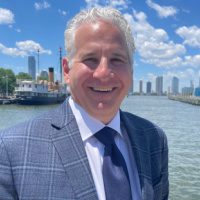
Robert Goldstein serves as the Founder/CEO of Genpro, Inc, a non-asset transportation provider specializing in temperature-controlled freight. After graduating from Boston University, the start-up of Genpro originated 33 years ago, providing transportation services to the fresh produce industry. Under Robert’s leadership, along with Genpro’s strong corporate culture, has enabled the company to be recognized as a Top 100 Freight Brokerage Firm. Robert continues to remain committed to the core values of providing strategic solutions to customers and carriers with high levels of integrity and innovation. Connect with Robert on LinkedIn.
